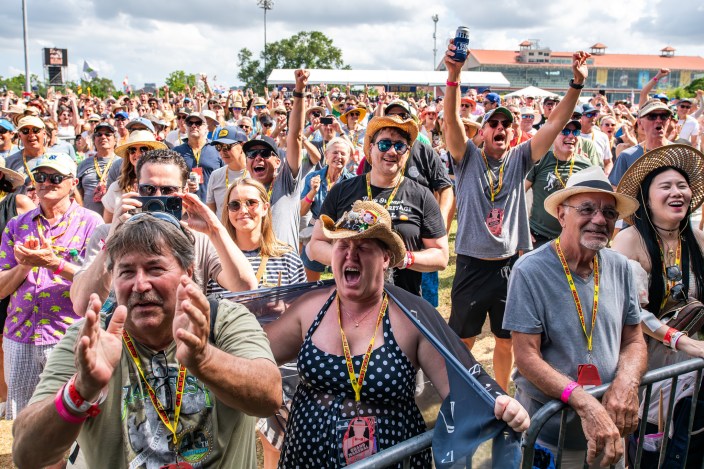
The New Orleans Jazz and Heritage Festival gets a lot of flack for booking artists not exclusively categorized as “jazz,” and this year, there were plenty of online trolls and critics pointing out the alleged disparity with particular regard to the headliners. Among those being called out who played the second weekend, May 2-5: The Rolling Stones on Thursday; Foo Fighters, Hozier, and Steel Pulse on Friday; and Neil Young, Greta Van Fleet, and Queen Latifah on Saturday. Sunday was an exception, as headliners Trombone Shorty, Bonnie Raitt, and Earth, Wind & Fire all cross over into typical jazz territory on occasion (other perhaps atypical examples who performed the first weekend, April 25-28, included Vampire Weekend, Juvenile, Heart, The Killers, and The Beach Boys).
I’d surmise that most if not all of these naysayers have never actually attended the 53-years-running festival. If they had, or done sufficient analysis, it’s more likely they’d realize the folly of their overgeneralized assumptions.
It’s not wrong, however, to point out that most closing acts weren’t bread-and-butter jazz, but there are a few points in defense of the overall fest’s status worth recognizing. First, festival culture in general would ostensibly be on the brink of extinction if it hadn’t evolved to incorporate more contemporary artists seeing as the bulk of fans fueling ticket sales are largely younger demographics. The trend is evident across the board with one chief example being Bonnaroo, which for years closed out with legacy acts like Elton John, Tom Petty, and Billy Joel, but scores of young fans were taking off early, so, with some exceptions, there were largely bigger pop acts brought on to wrap up the 4-day fest like The Weeknd, The Killers, Paramore, and Foo Fighters.
Yet, cynics are forgetting one other important element highlighted in the New Orleans fest’s moniker: “heritage.” And that aspect — the idea that the music of any active artist, regardless of genre category, owes oodles to roots musicians, many of whom hail from sectors (blues, R&B, classic rock, you name it) that were heavily influenced by jazz sentimentalities. The Rolling Stones — whose performance marked a historic moment in the event’s history, in large part because they’ve been Jazz Fest’s white whale headliner for several years running — gave a pointed nod by bringing out Crescent City jazz queen Irma Thomas to perform “Time Is On My Side.” It was an especially resplendent moment for the fact that both Thomas and The Stones recorded versions of the song in 1964. The Foo Fighters and Neil Young likewise could never deny their legacy owing itself to jazz forbears, evident during their sets simply by virtue of delving into extended, sometimes freeform jams. Foos frontman Dave Grohl offered a specific note: “The best week of my life was spent here with the Preservation Hall Jazz Band,” a reference to 2014 sessions that led to the song “In The Clear,” featuring the legendary brass group on eighth studio album Sonic Highways.
That said, it isn’t a stretch to note that jazz, a key aspect of general music history and a New Orleans tradition through and through, is an integral part of the glue that ties all the fest’s artists together. A more obvious crossover example from Saturday’s lineup was Rhiannon Giddens, who declared that she and her band were on a mission to guide the audience on a journey through American music, “because all the things come together in the American sound … [starting with] Louisiana.” She proceeded to crush it with a rendition of traditional creole song “Dimanche après-midi,” featuring French vocals and furious fiddle.
As a first-time Jazz Fest attendee, it was a revelation to me that — within the bulk of the lineup leading up to headliners, which played out across 14 stages (plus additional popups) — the reigning sonic style was jazz-based. How could anyone deny that notion, especially considering sublime performances from contemporary performers Allison Russell and Samara Joy (who won the Best New Artist and Best Jazz Vocal Album accolades at this year’s Grammy Awards for latest album Linger Awhile)? And while Queen Latifah’s Saturday performance leaned heavily on her classic hip-hop catalogue, she made her point by opening the set with sultry crooner “When You’re Good To Mama,” pulled from the 2002 Chicago soundtrack. Then there was a full solo set from the Queen of New Orleans Jazz, Irma Thomas, on Sunday, and you absolutely can’t make an argument against that one.
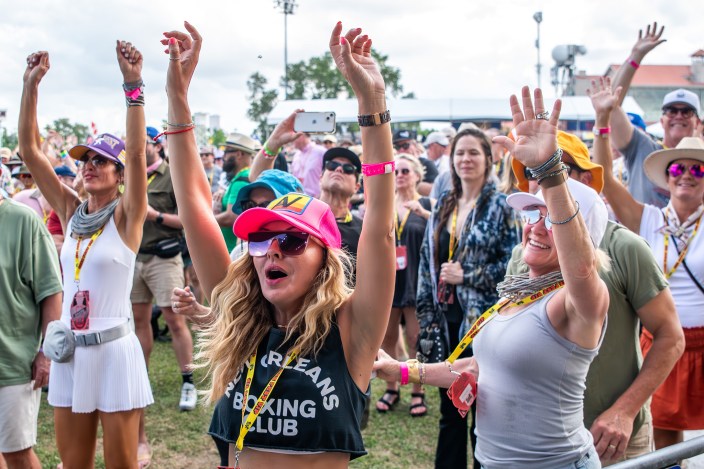
Jazz Fest’s staggering commitment to music heritage on a global scale was also evident in their Cultural Exchange program, which this year highlighted artists from Colombia. Standouts among the performances included the highly influential Grupo Niche, a significant feature on the main stage from Cimarrón and a wildly colorful and exuberant show from percussion-based Matachindé in the exchange tent itself. Also impossible to ignore within the context of legacy — at this festival in particular — was the joyful tribute to the late Jimmy Buffet, led by his Coral Reefer Band and featuring guests such as Irma Thomas, Sonny Landreth, Trombone Shorty, and Buffet’s oldest daughter, Savannah (who joined for crowd favorite “Fins”). Buffet and his band played Jazz Fest about a dozen times over the years, and in that same vein, other nods to the fest’s longstanding traditions included Bonnie Raitt (who made a similar number of appearances over the decades in some form or another) and Leo Nocentelli of The Meters (who perhaps has more features at the fest than most artists save for the Neville Brothers).
As a whole, the festival celebrates cultural heritage in ways that stretch far beyond music: visual arts, craftsmanship (woodworking, blacksmithing, etc), even circus performances. And the food … WOW. Y’all, at least half the experience of Jazz Fest is indulging in the incredible variety of cuisine, a mouth-watering array of local flavors infused with ingredients from virtually every culture imaginable. Go for the music, stay for the food.
So, if you’re one of those hopping on Reddit boards and taking issue with the 8-day event eschewing the supposed theme of its name, take careful consideration. The New Orleans Jazz and Heritage Festival was and still is — even in the modernized landscape of 2024 festivals — an homage to all the intertwined threads of musical culture, which inevitably connect to jazz. It’s a home for fans of all stripes: young, old, funky and outlandish, rockers, swing, funk and hip-hop aficionados, diehard hippies, historians and world travelers, to name a few. Prior to my firsthand experience, I didn’t fully understand the extent of Jazz Fest’s inclusivity, both musically and socially, but by the end, there was no doubt that the community welcomes anyone with an open mind and a love for live music. I implore everyone: before you hand down your final judgment, make the pilgrimage, experience the magic, and find out for yourself.
Check out an exclusive photo gallery from the 2024 New Orleans Jazz and Heritage Festival below.
Foo Fighters
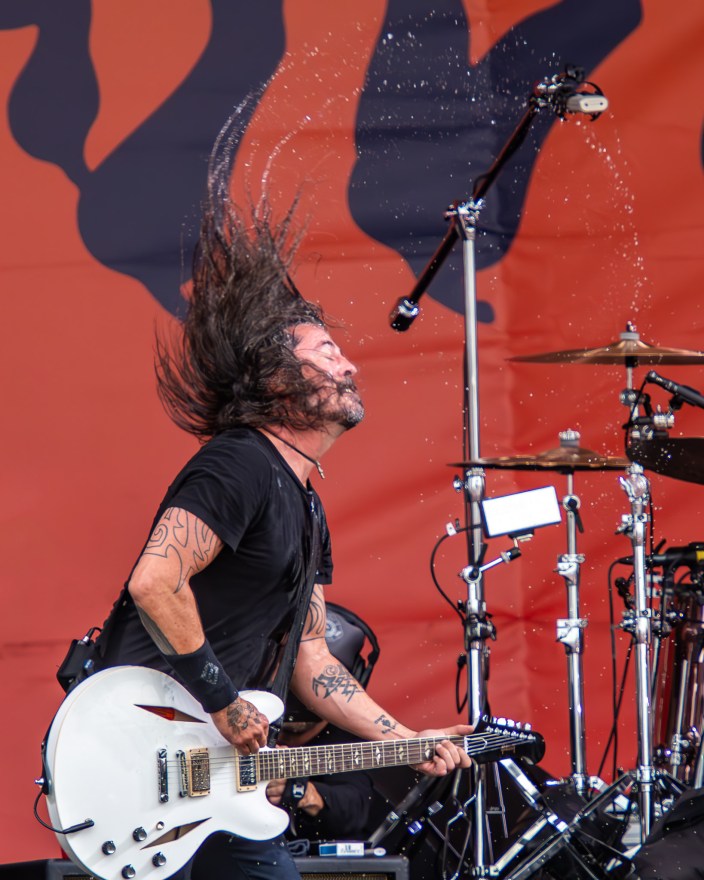
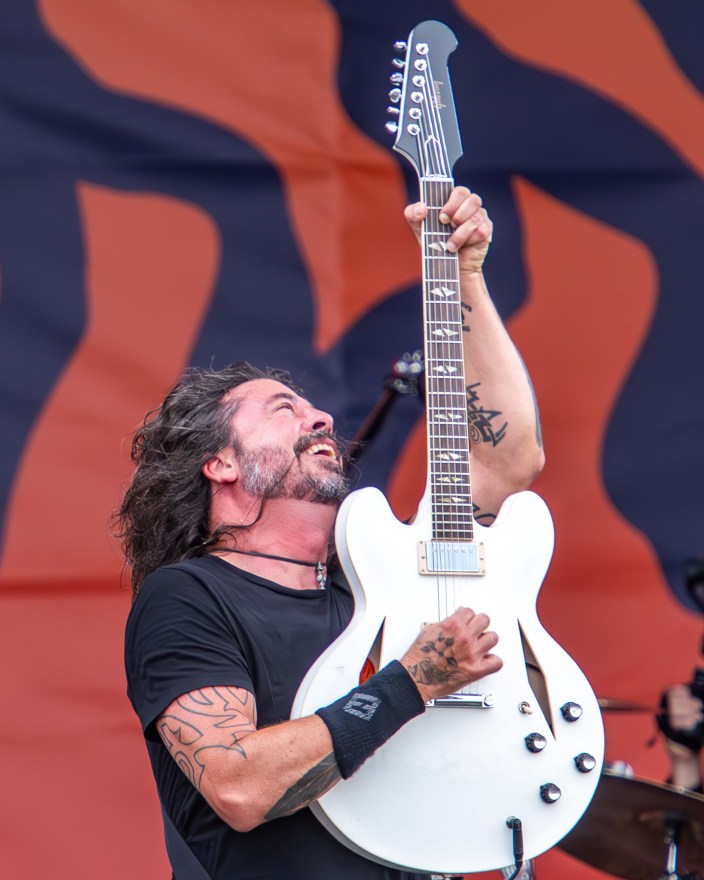
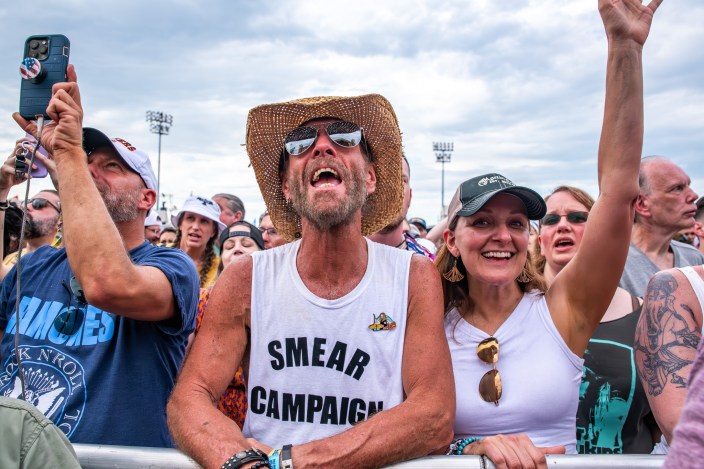
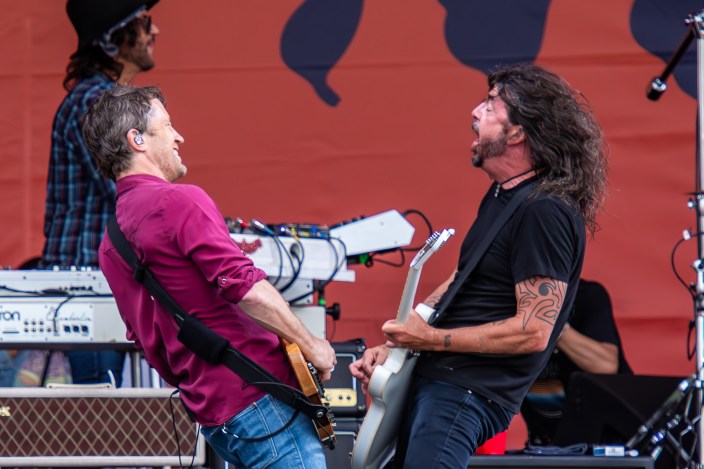
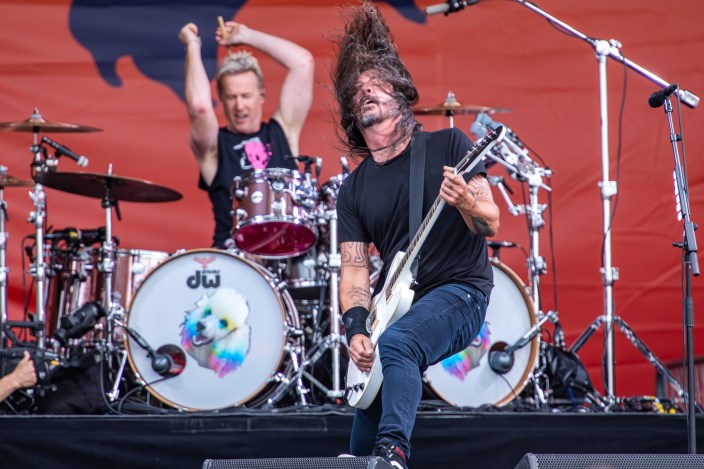
Hozier
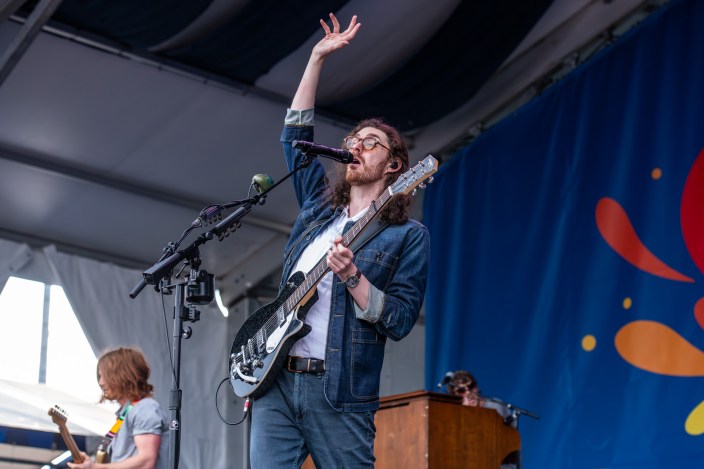
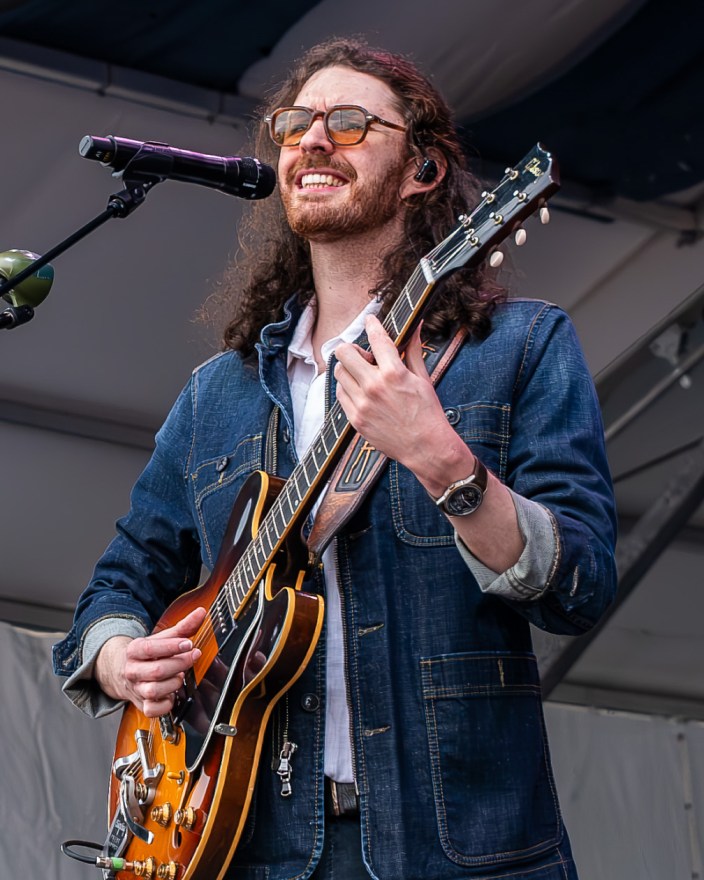
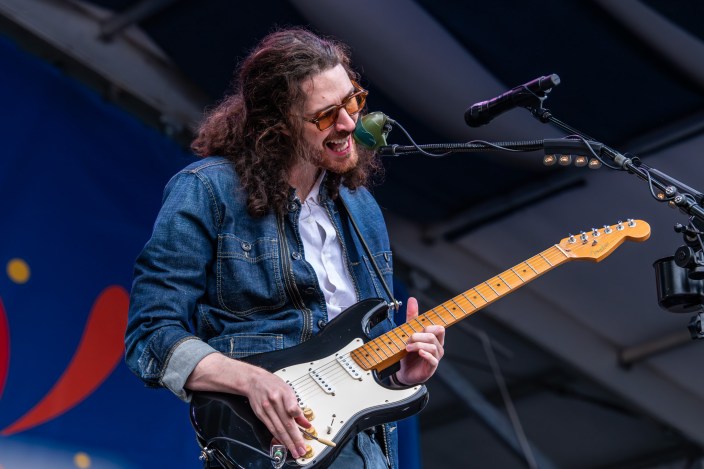
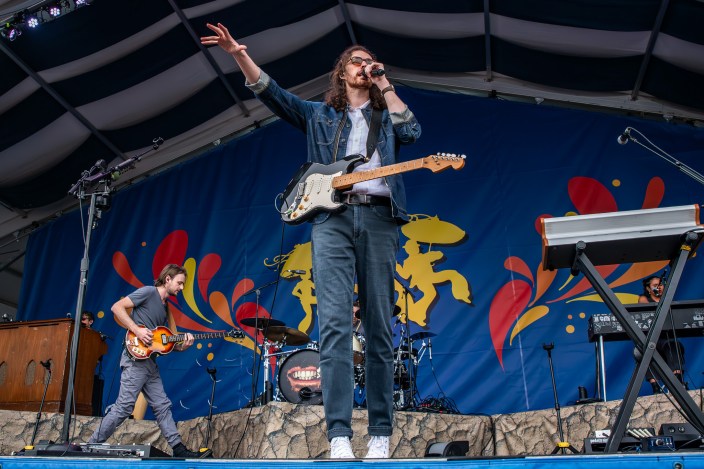
Queen Latifah
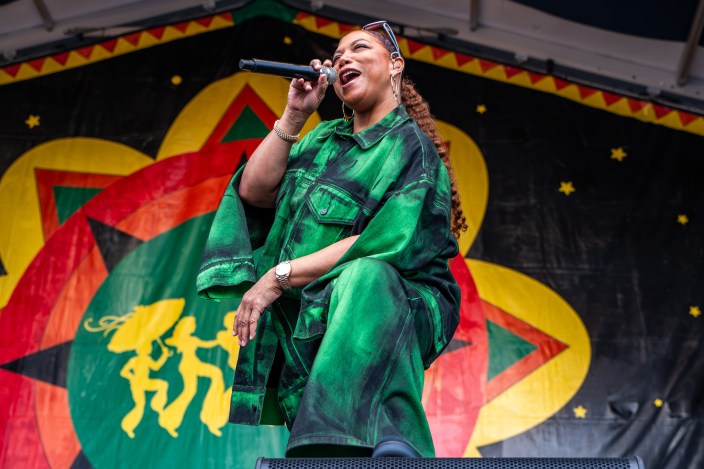
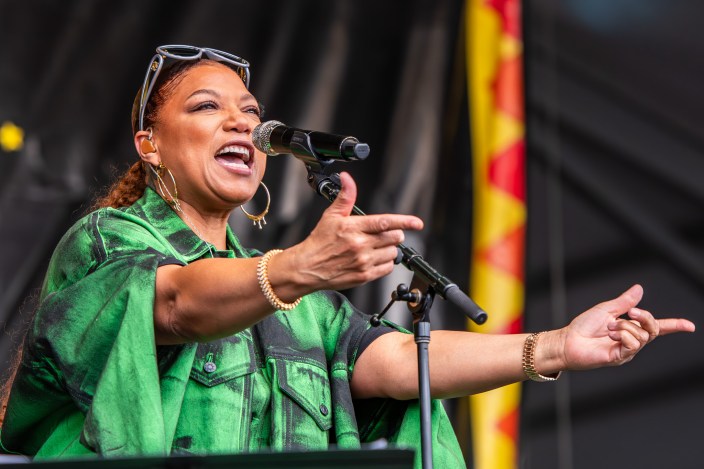
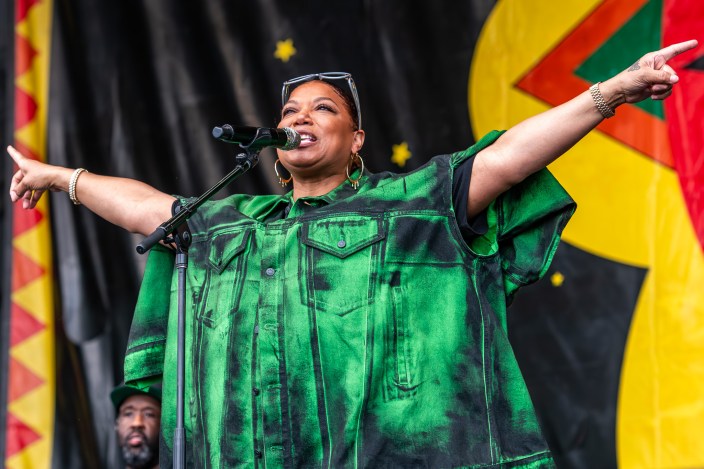
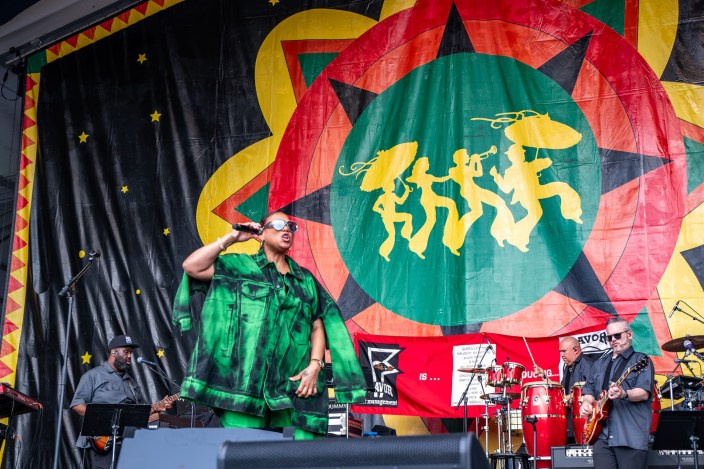
Bonerama
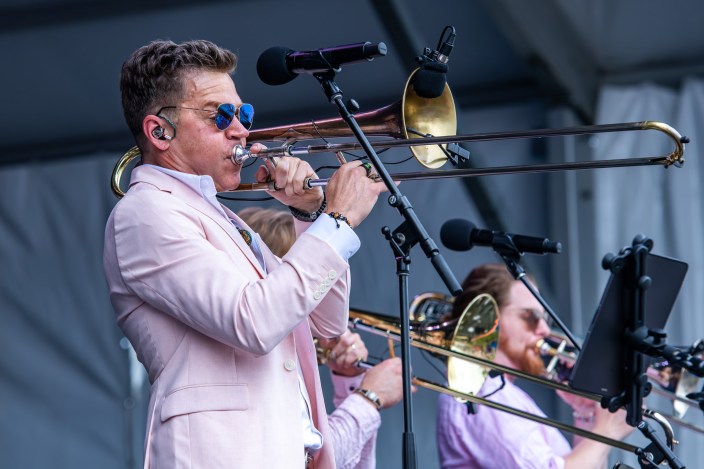
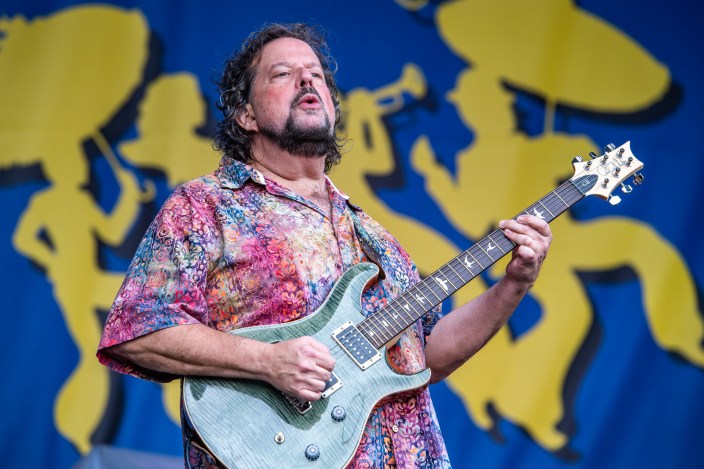
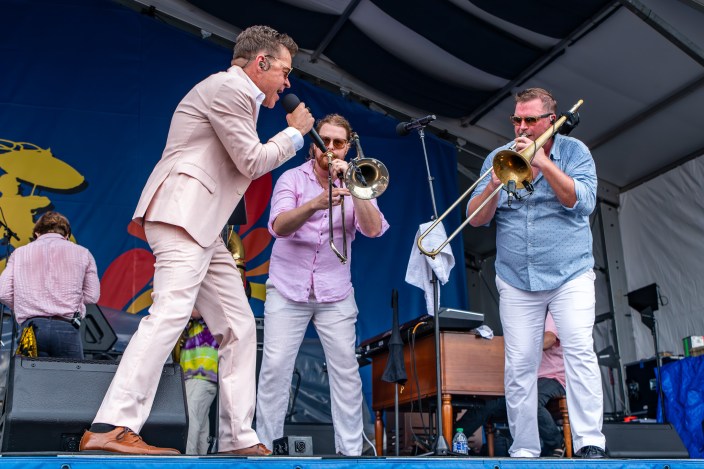
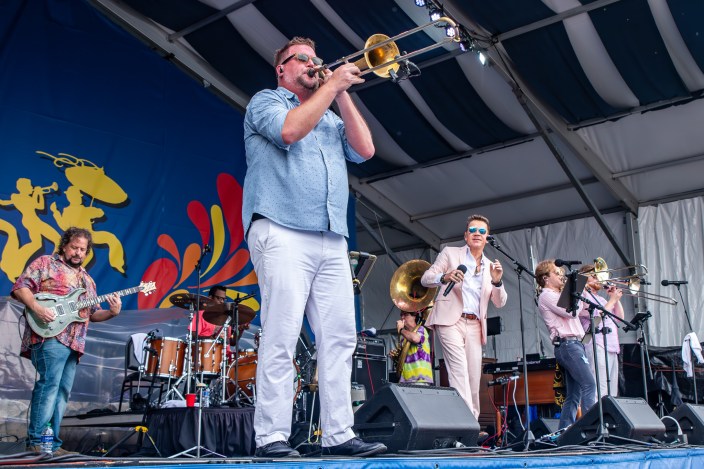
Matachinde
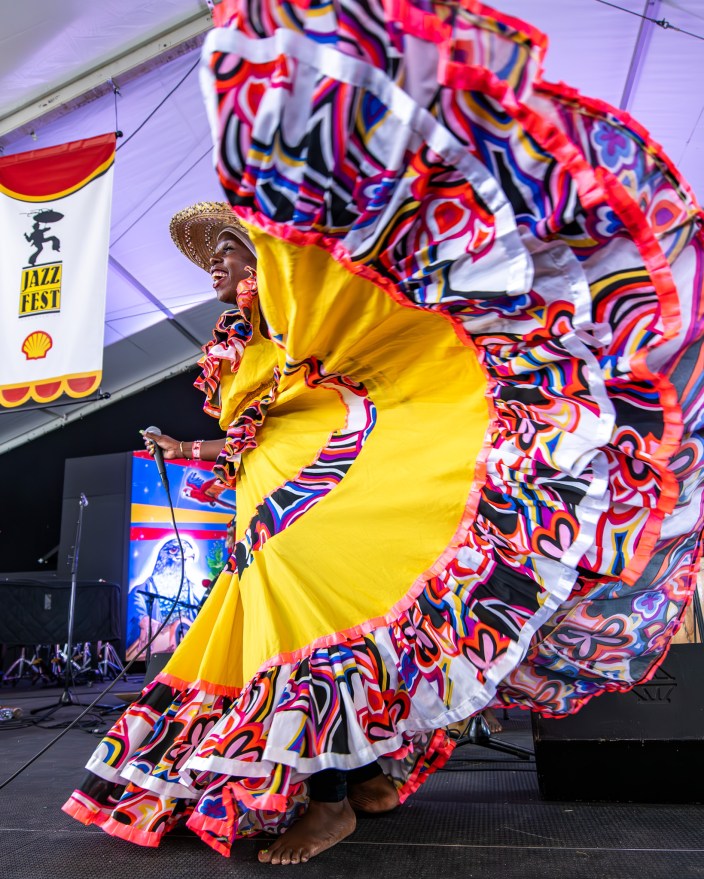
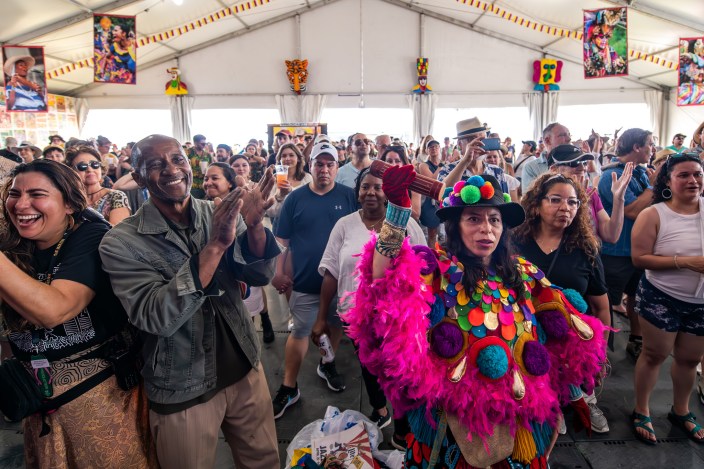
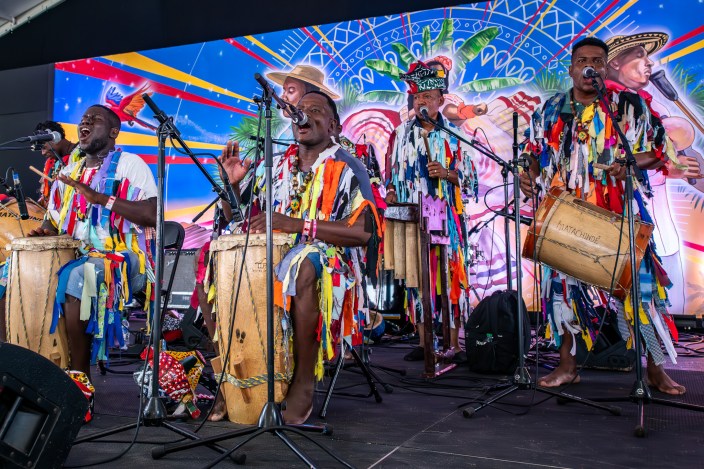
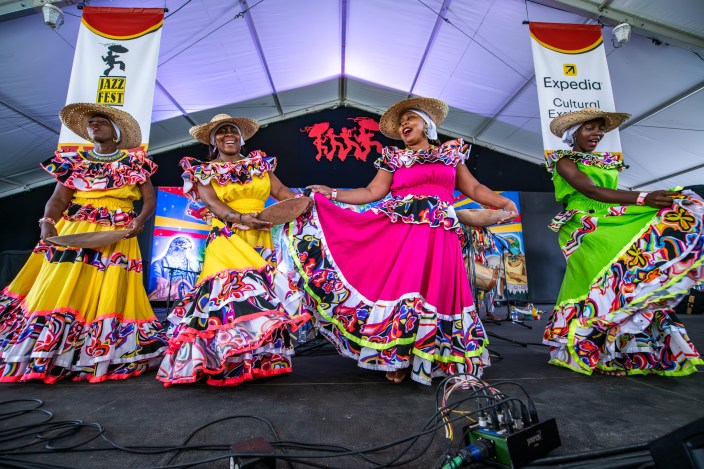
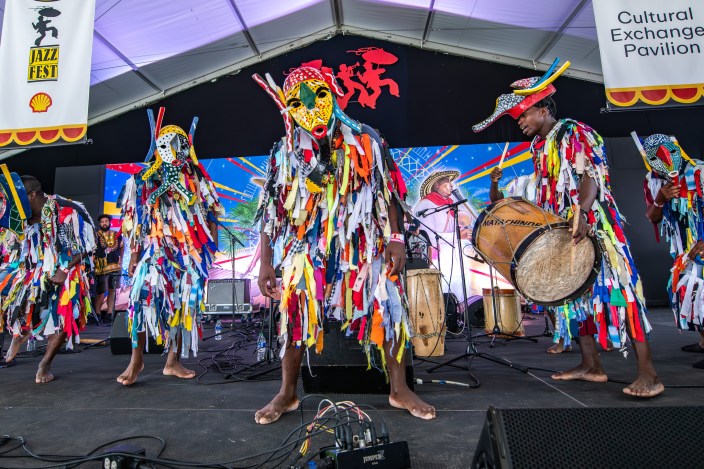
Atmosphere
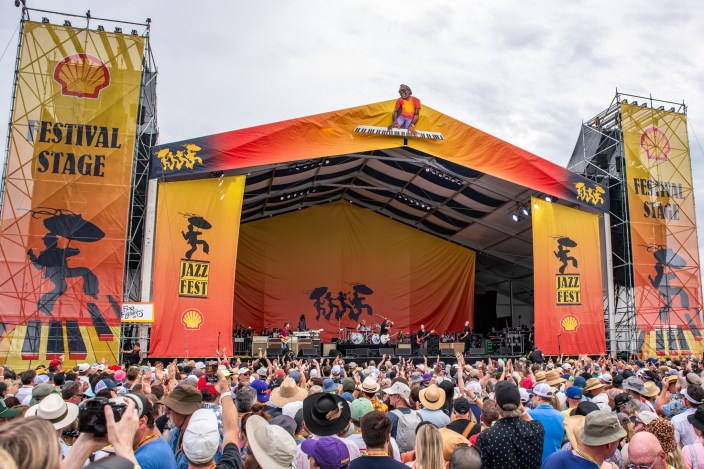
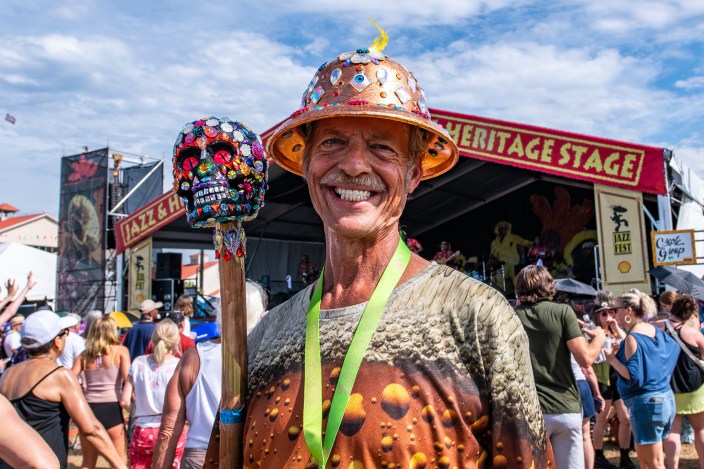
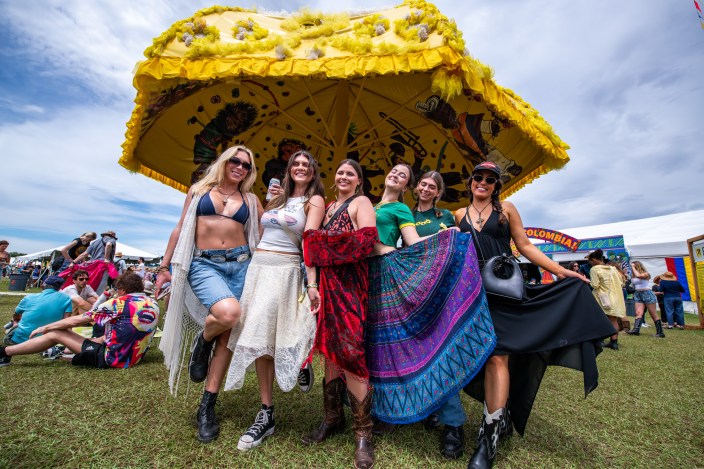
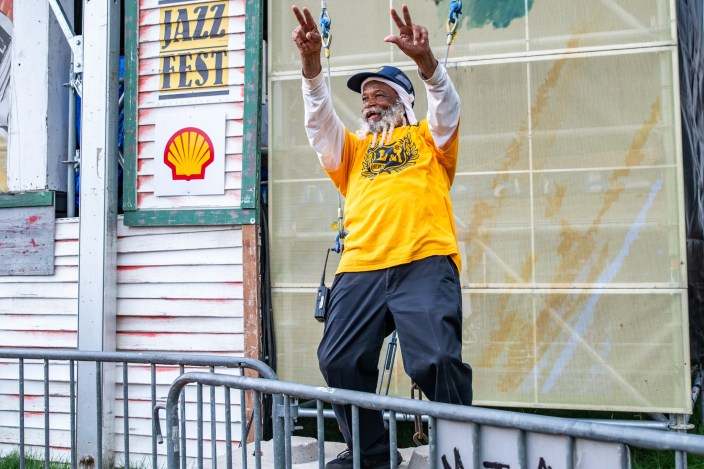
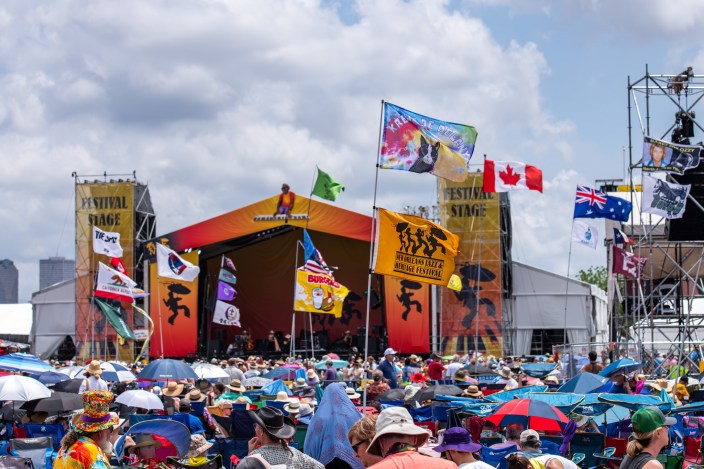
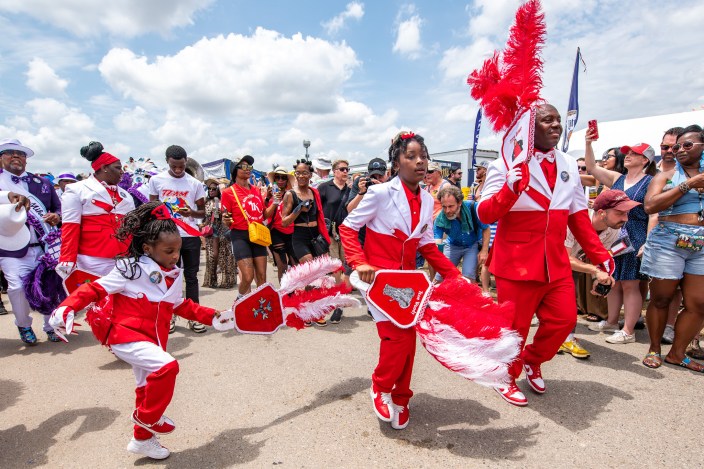
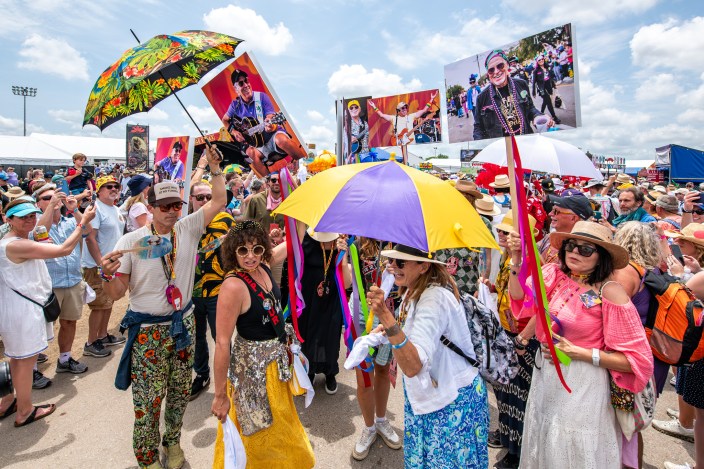
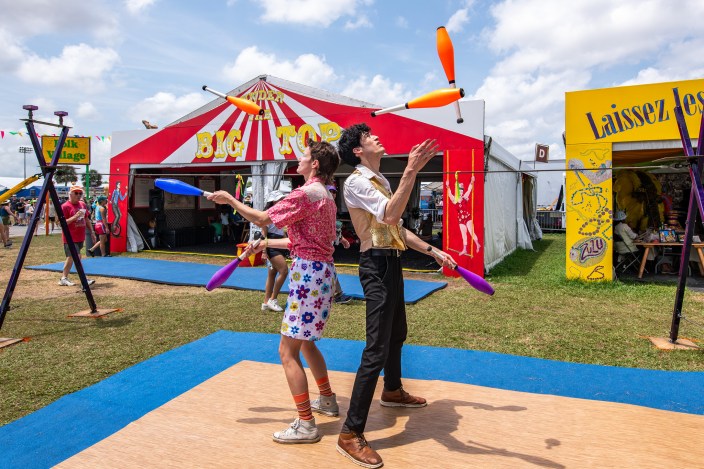
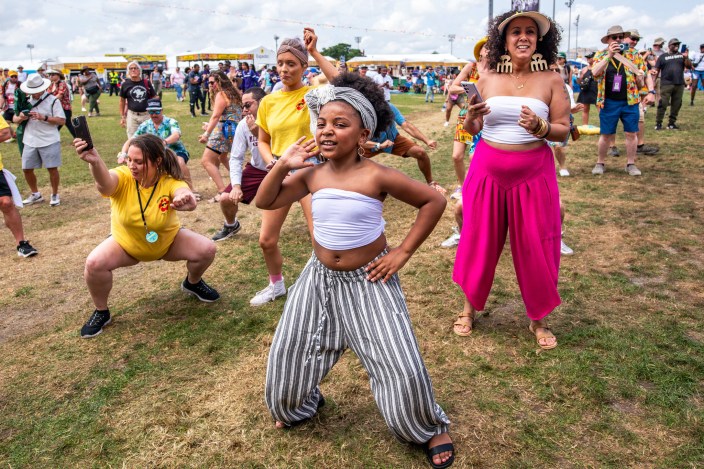
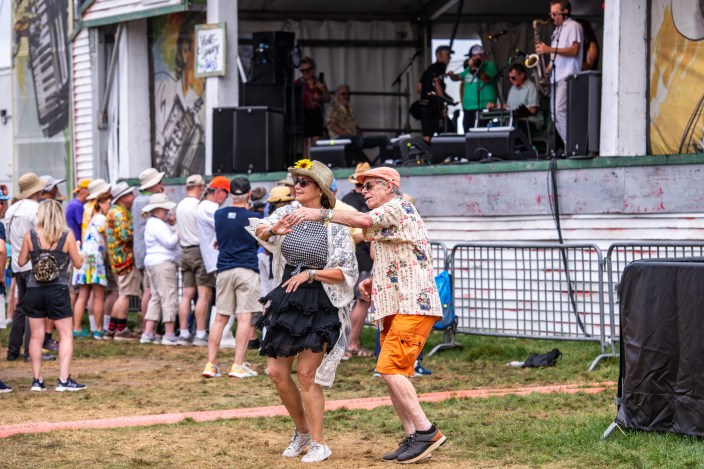
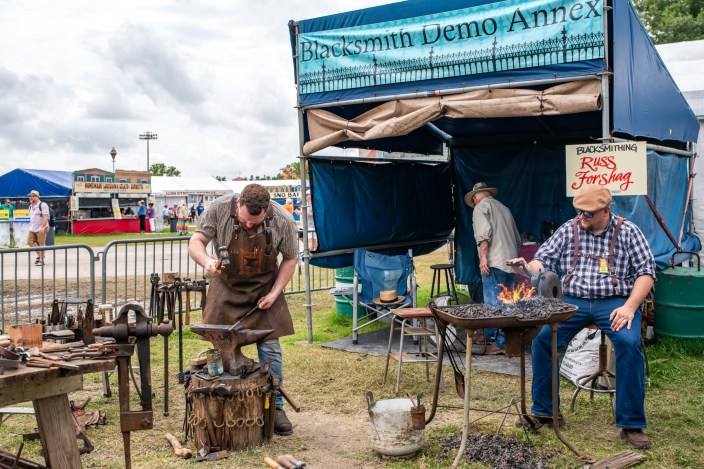
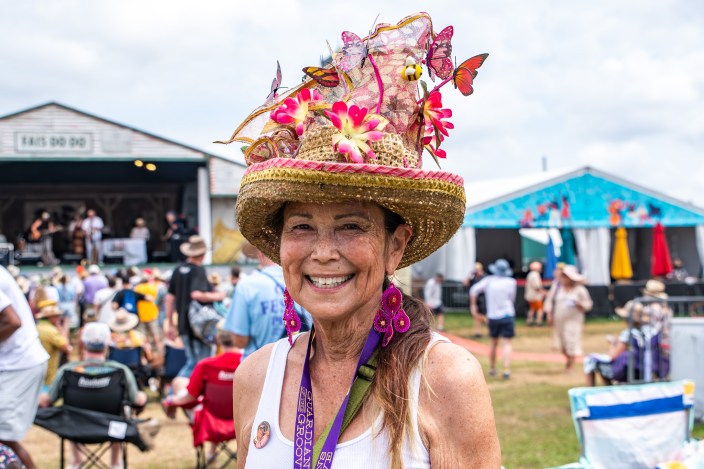
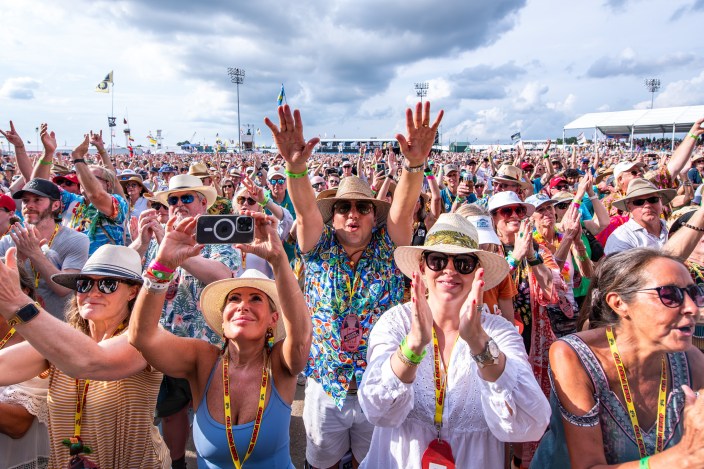
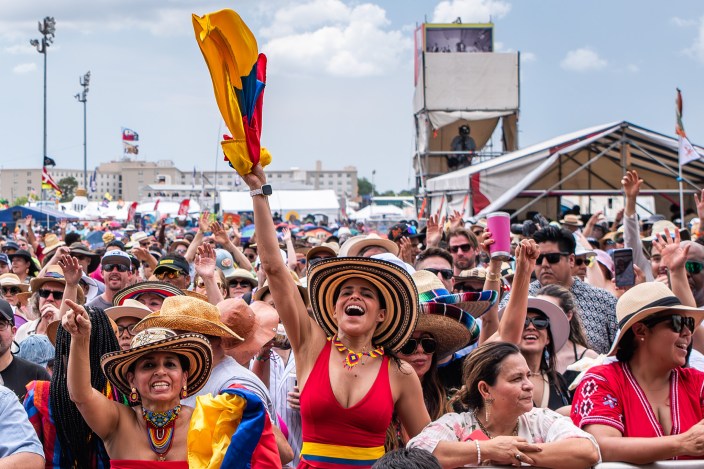
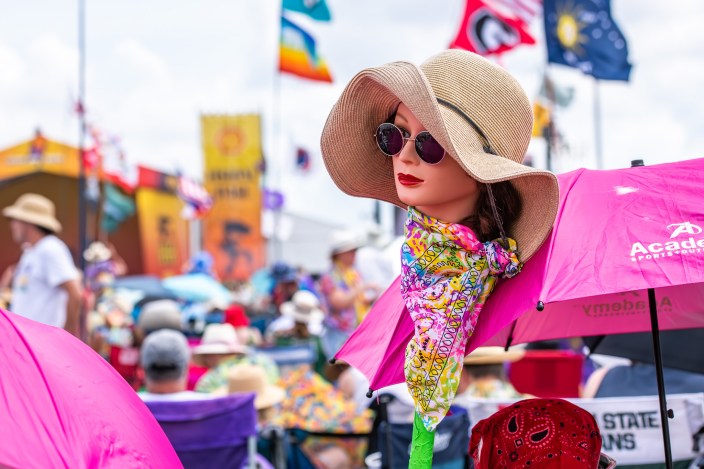
Galactic
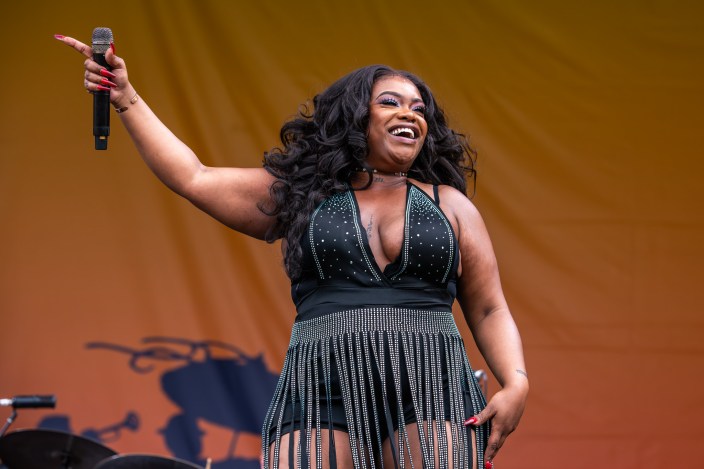
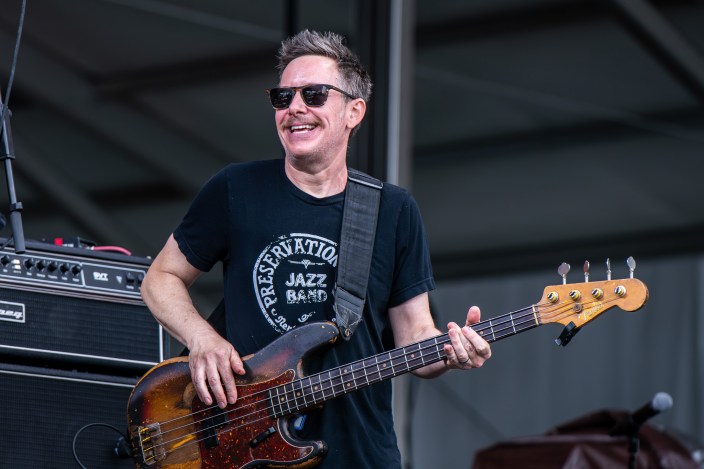
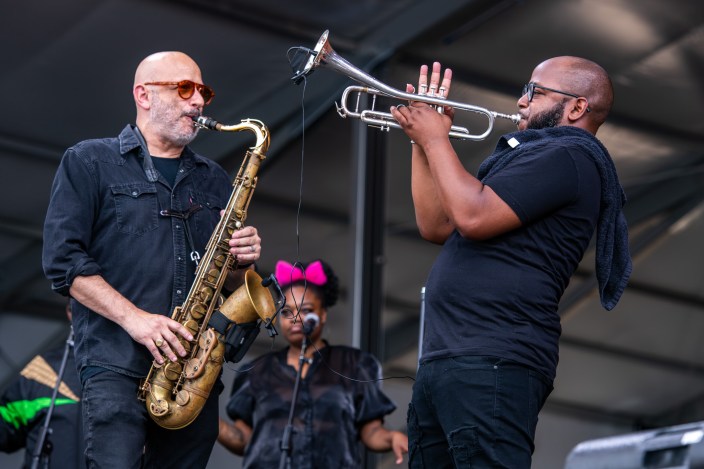
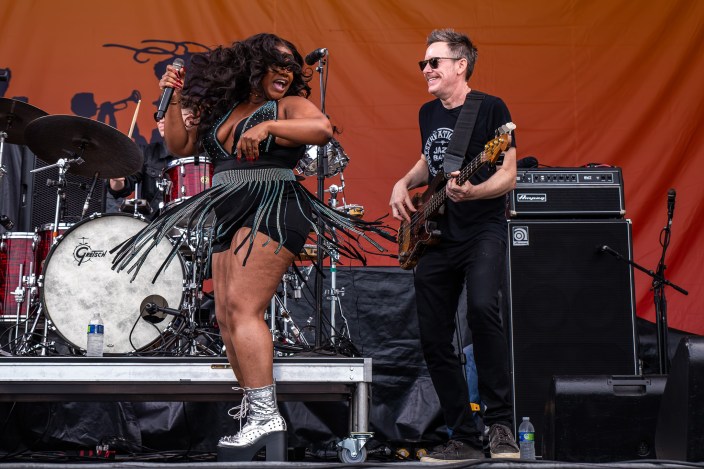
Allison Russell
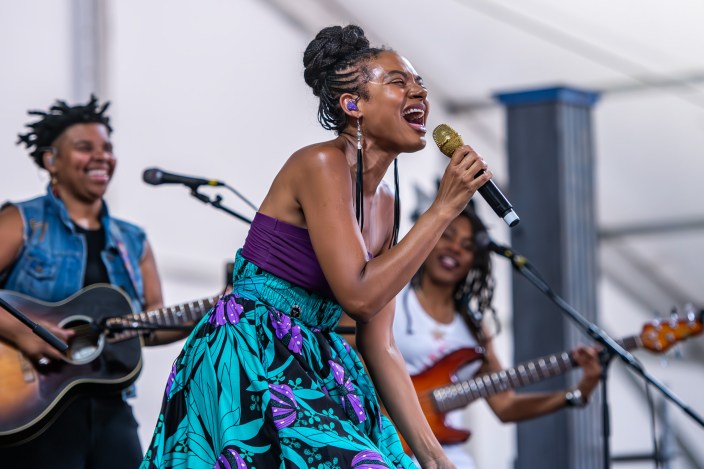
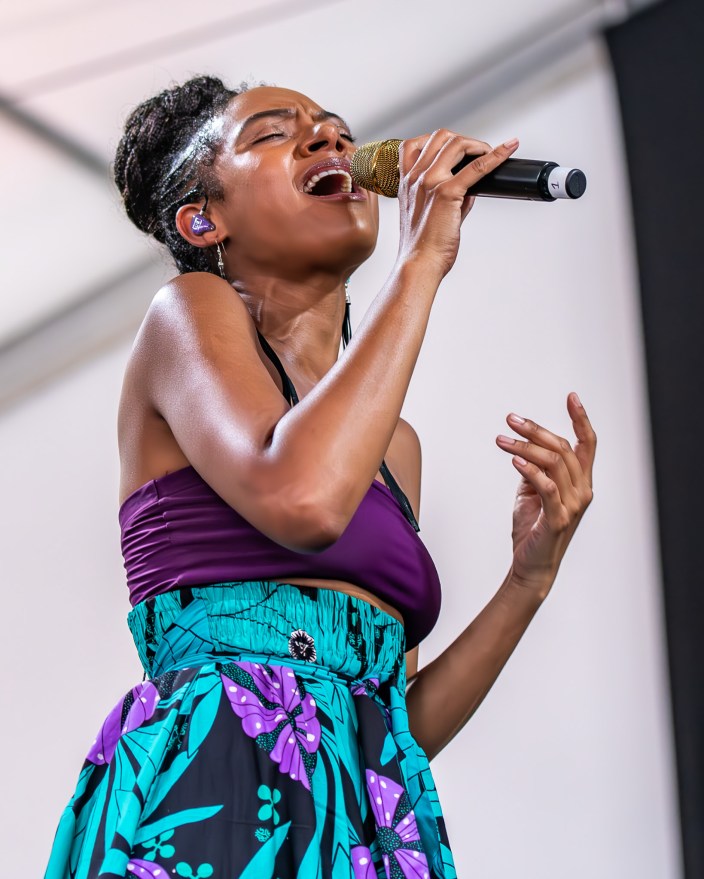
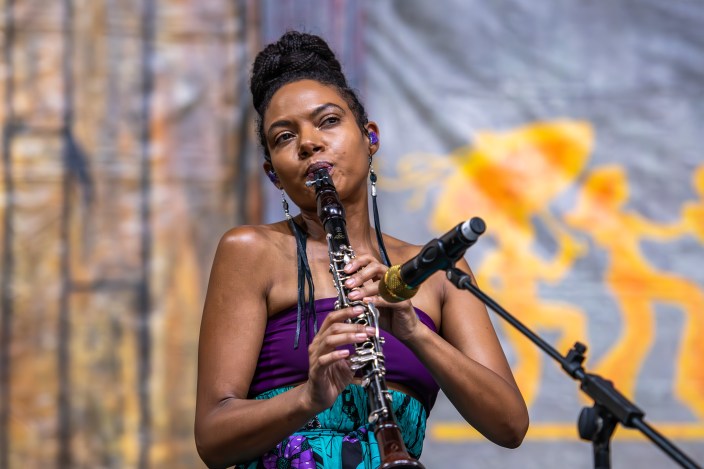
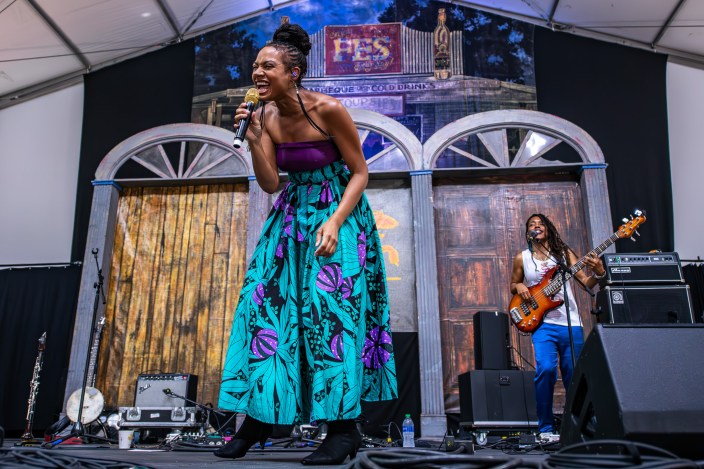
Hotboy Ronald
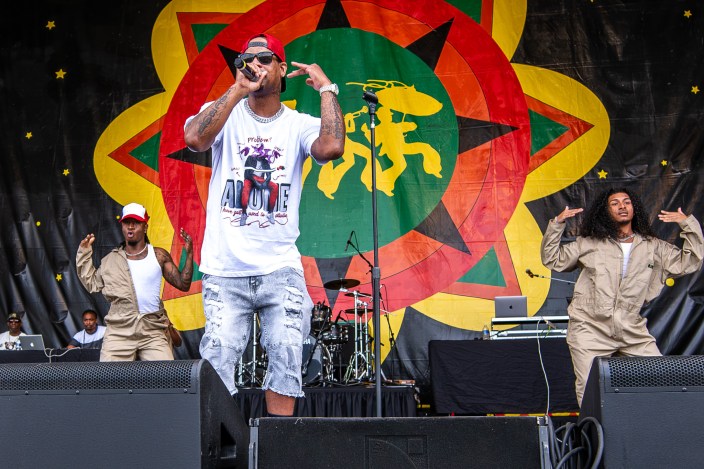
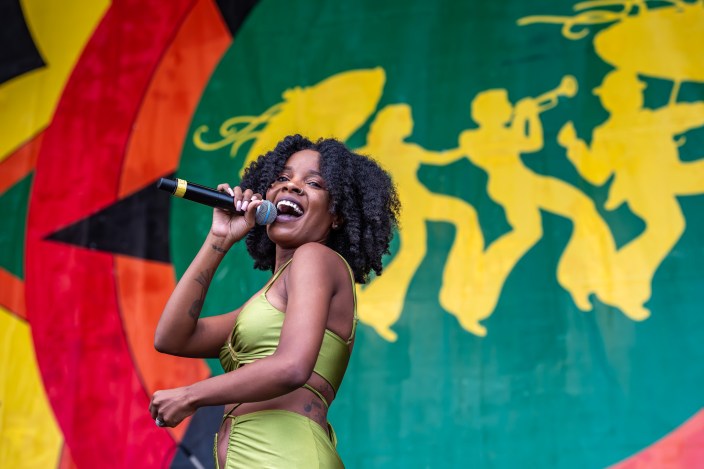
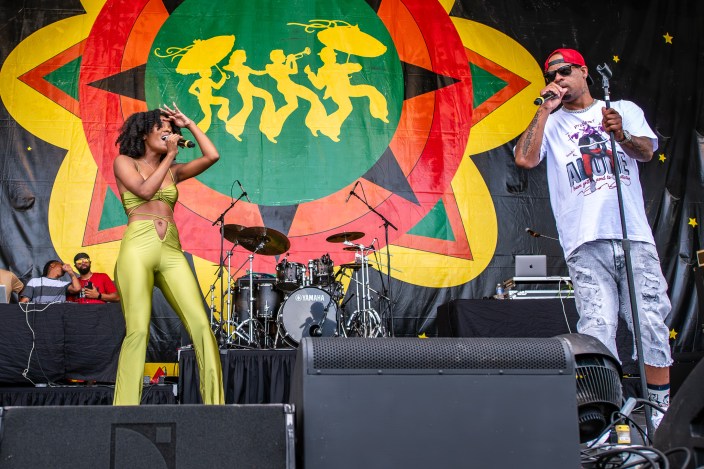
Big Chief Bird And The Young Hunters
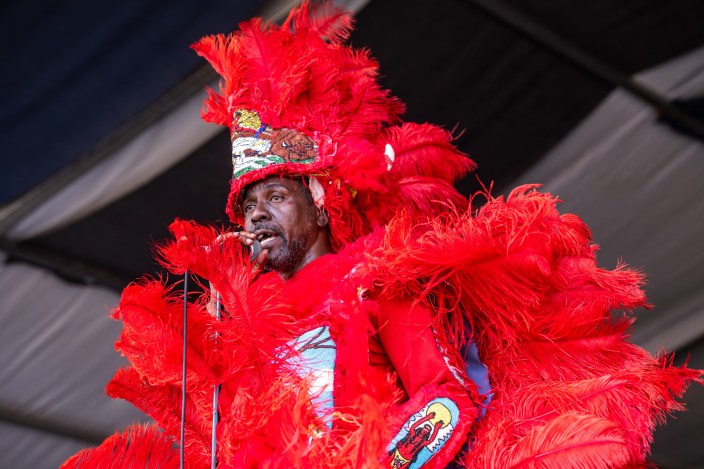
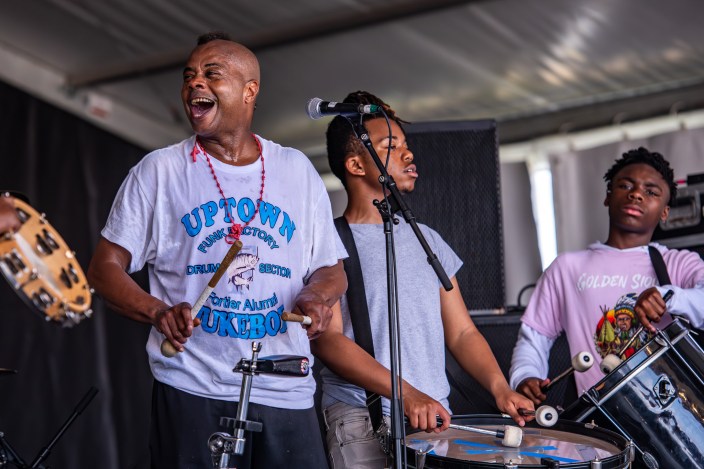
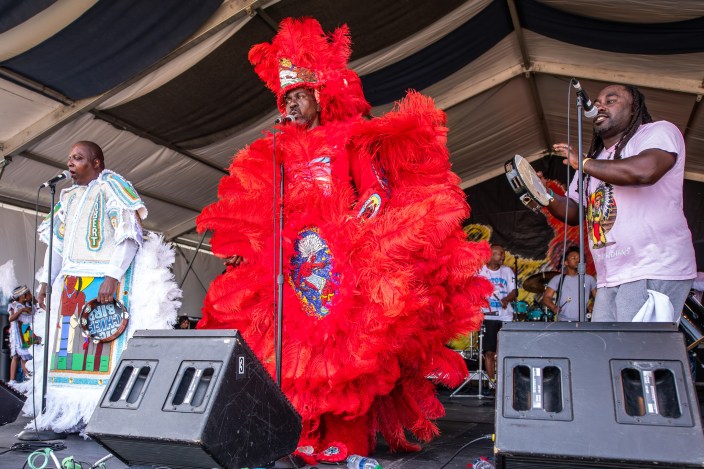
Cimarron
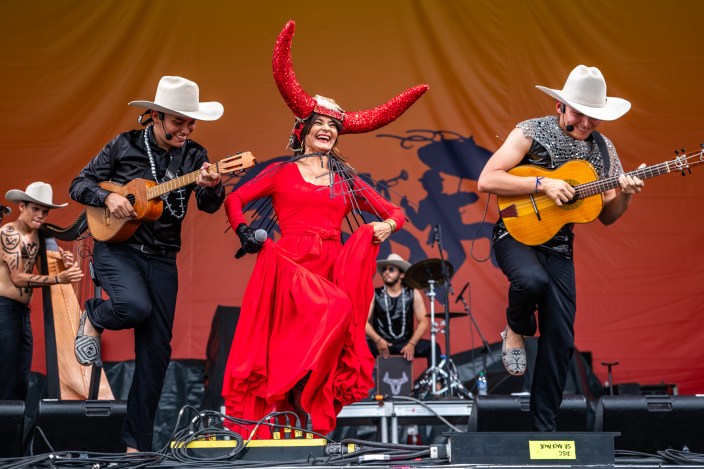
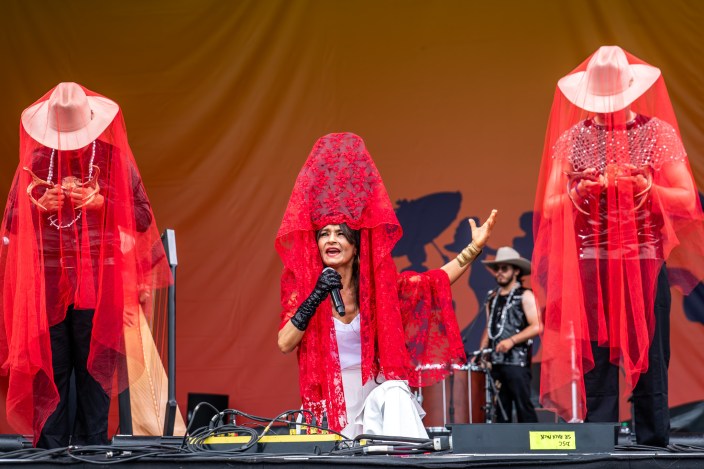
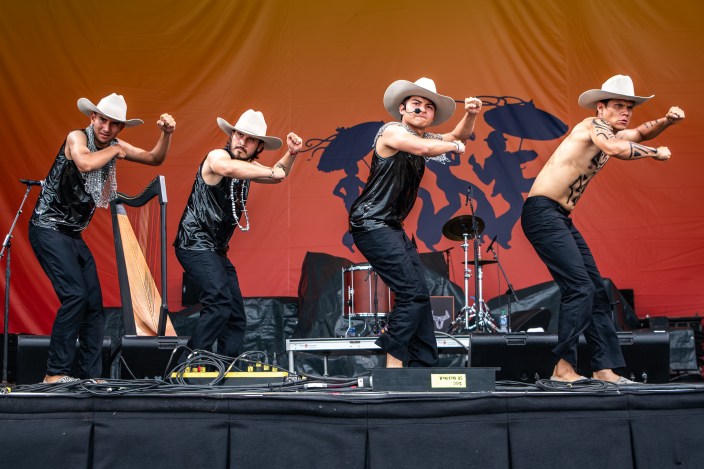
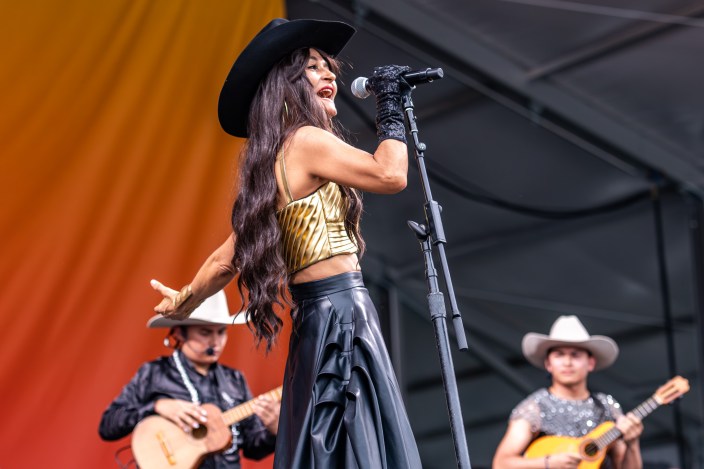
Leo Nocentelli
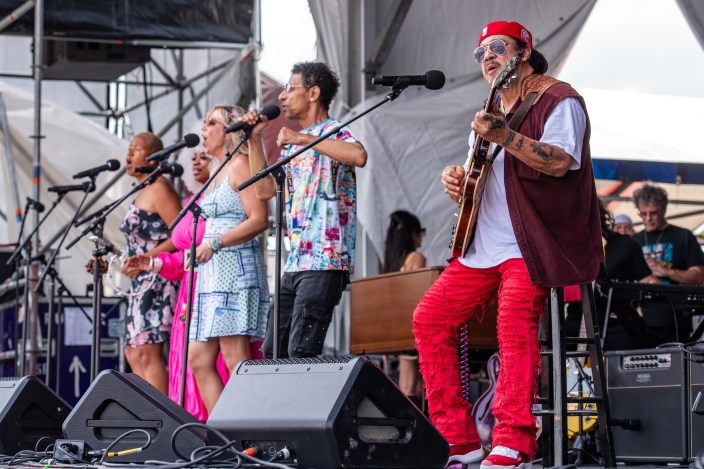
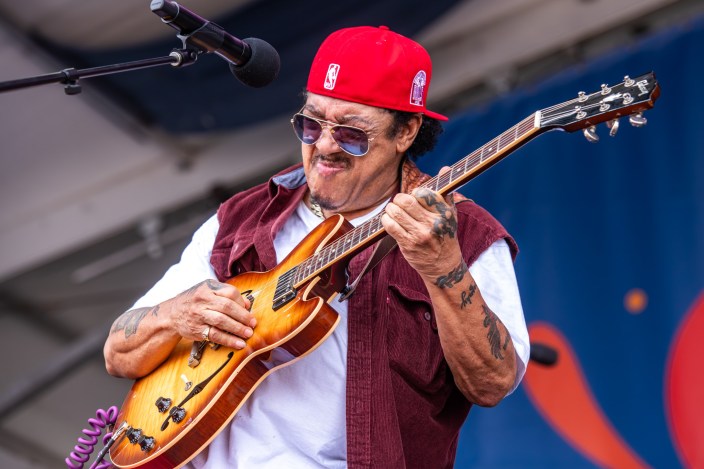
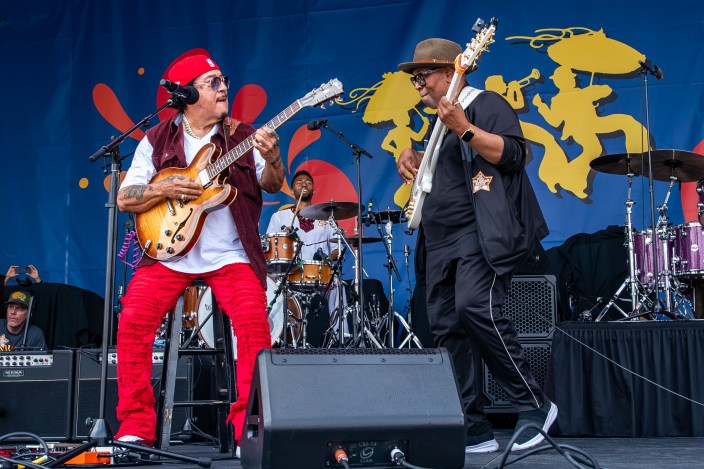
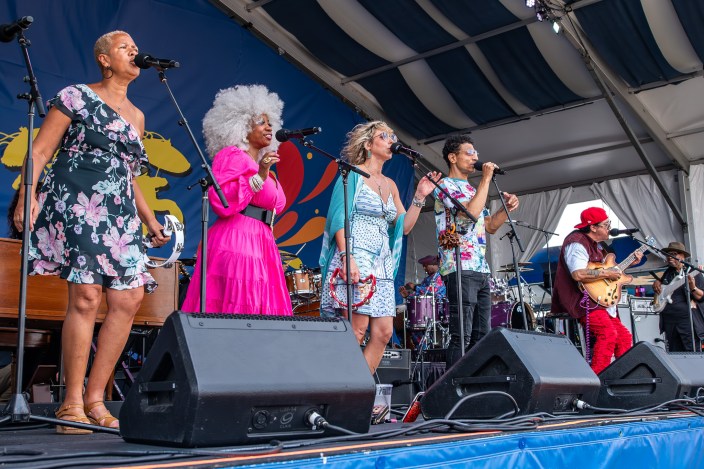
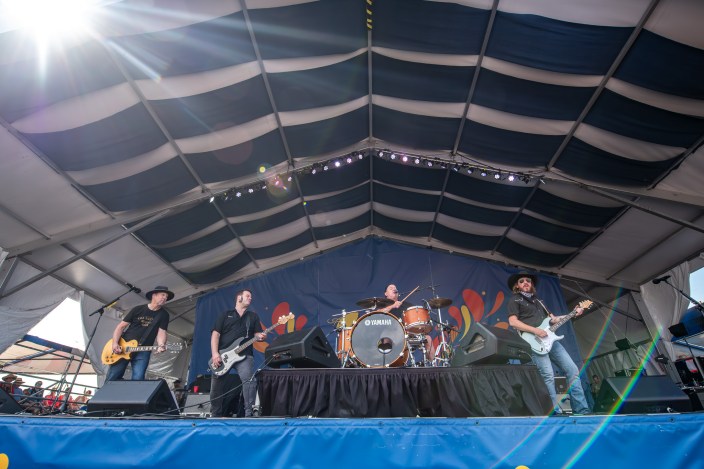
Cowboy Mouth
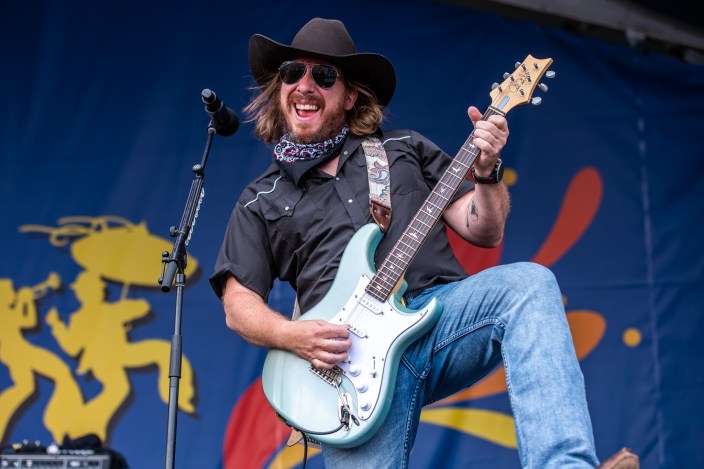
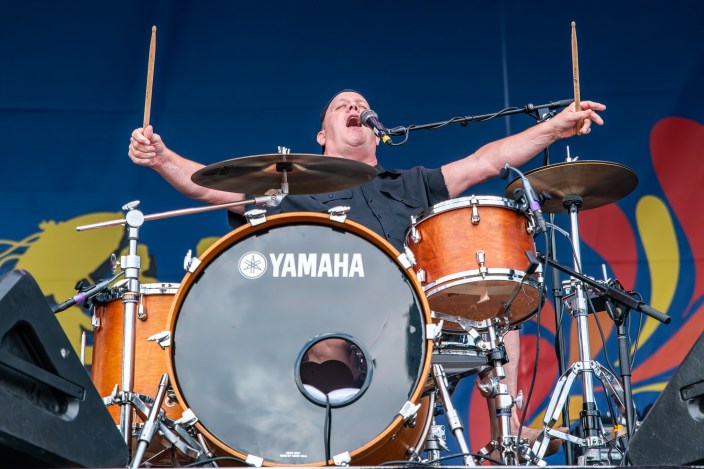
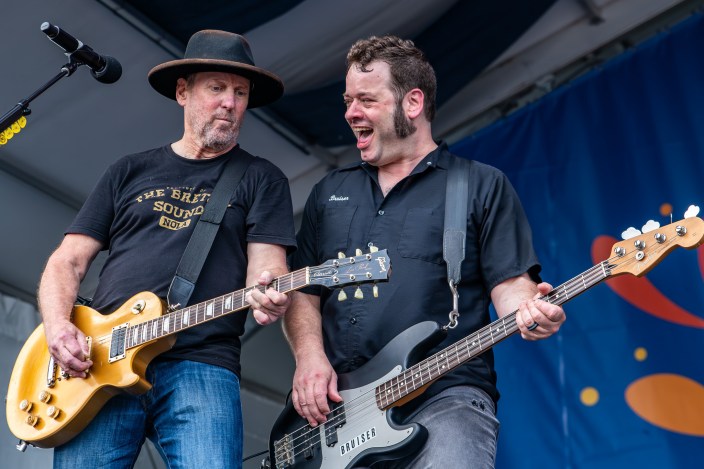
Samara Joy
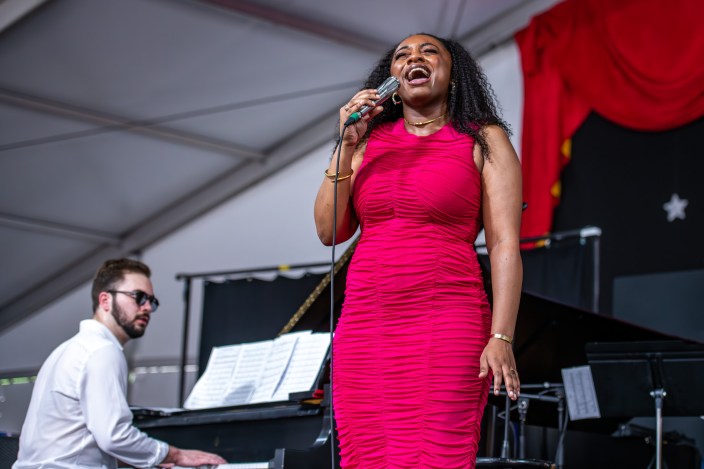
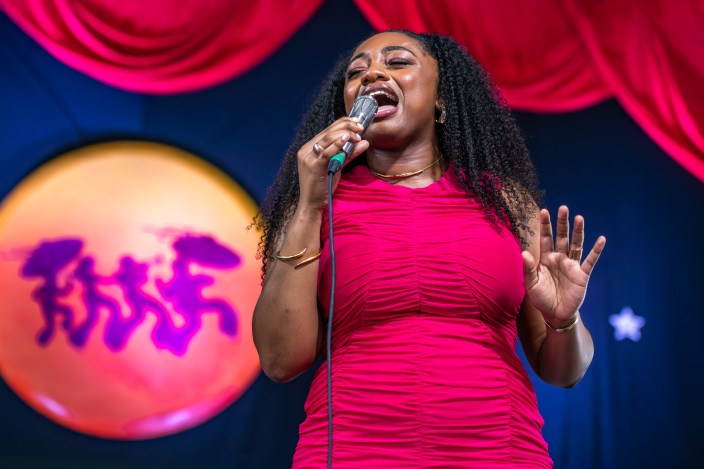
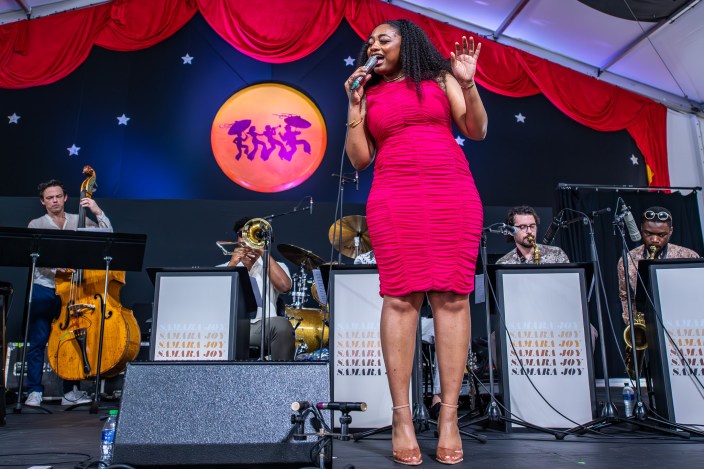
Rhiannon Giddens
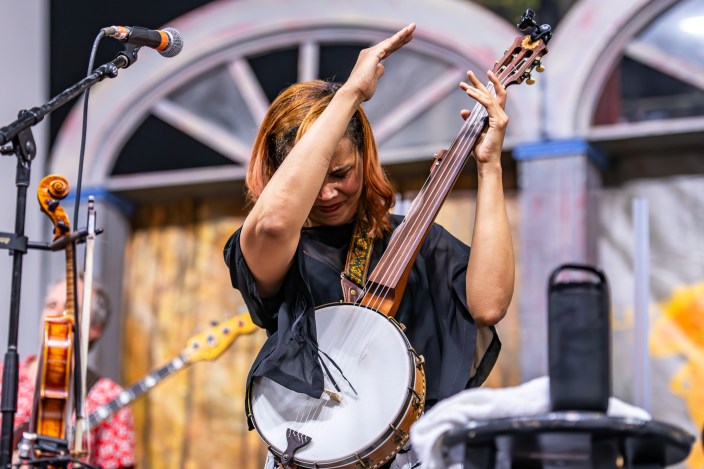
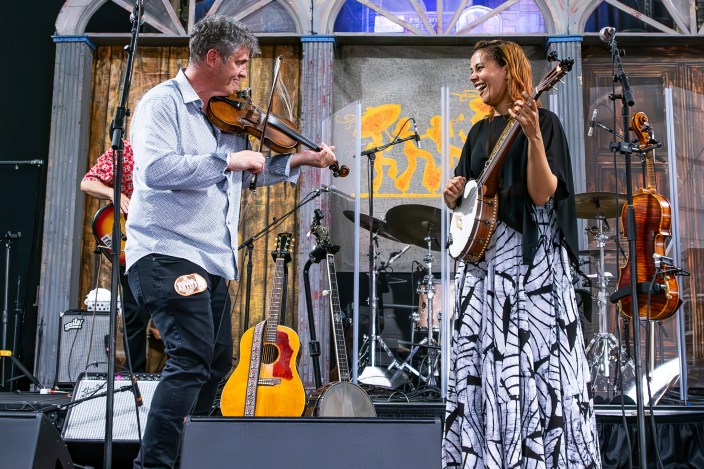
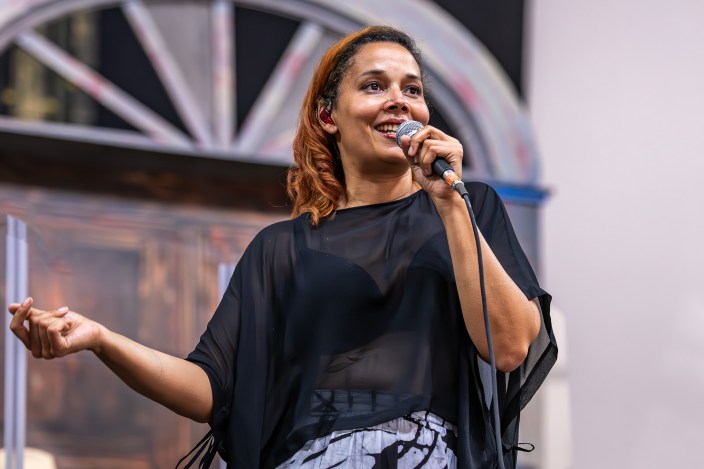
Neil Young And Crazy Horse
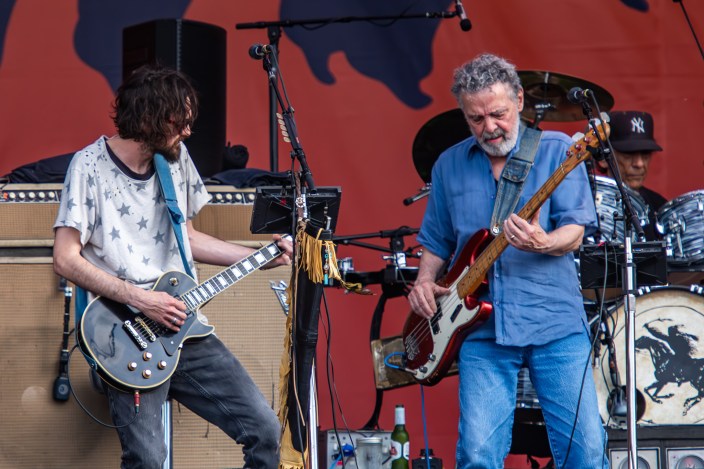
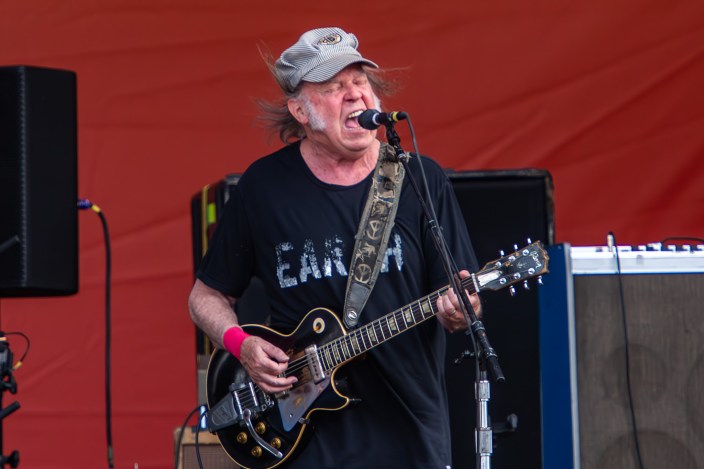
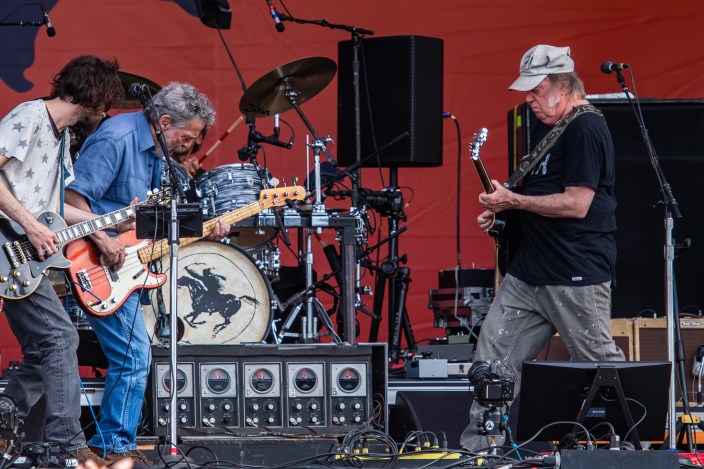
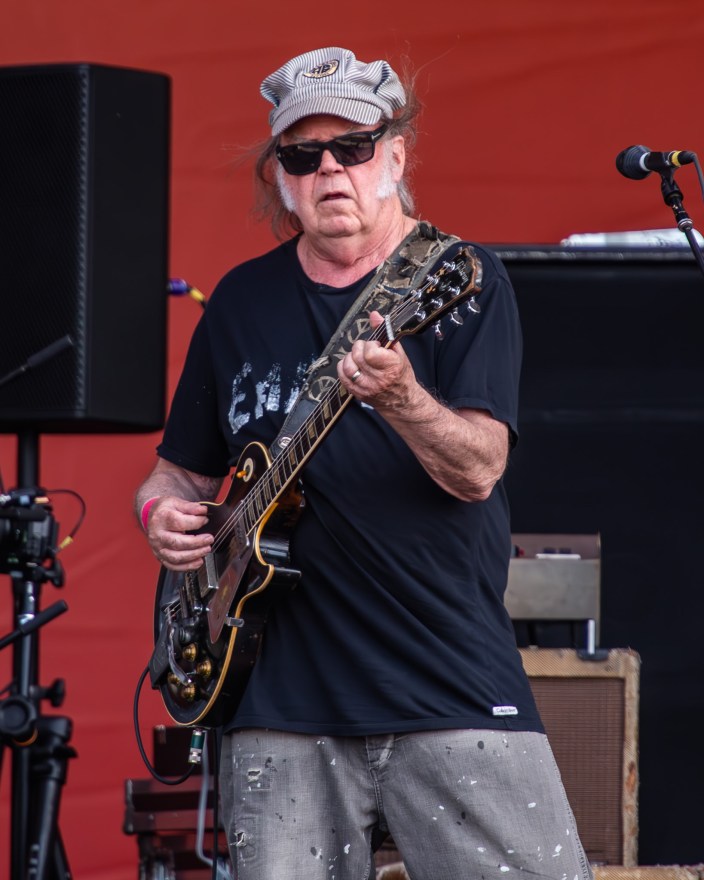
Irma Thomas
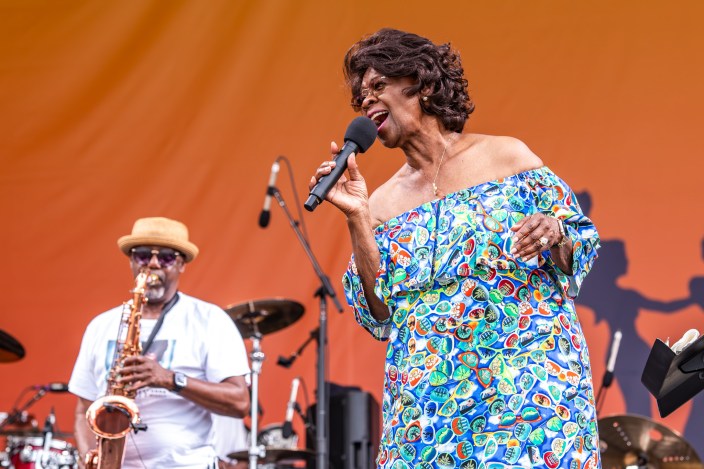
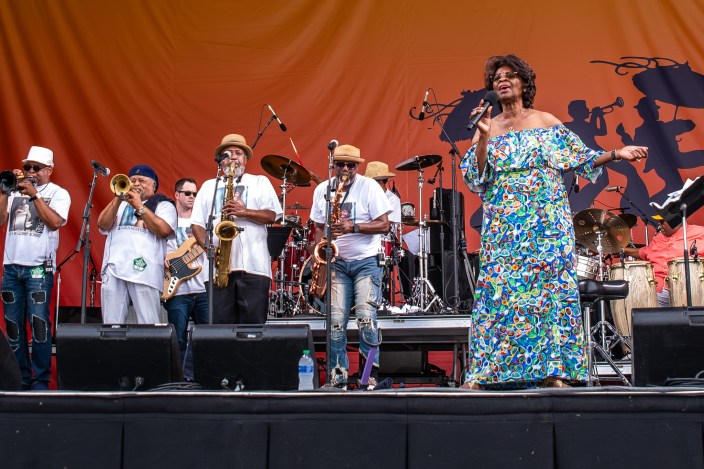
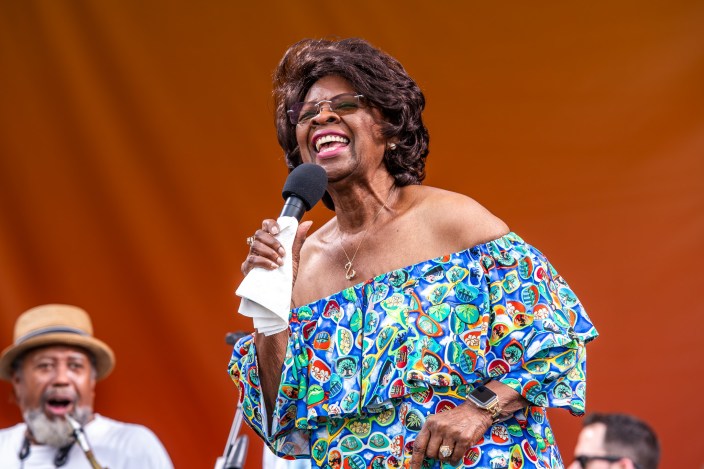
Grupo Niche
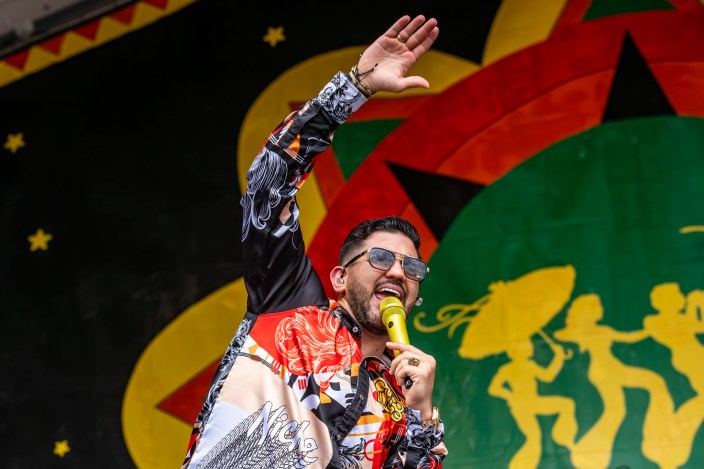
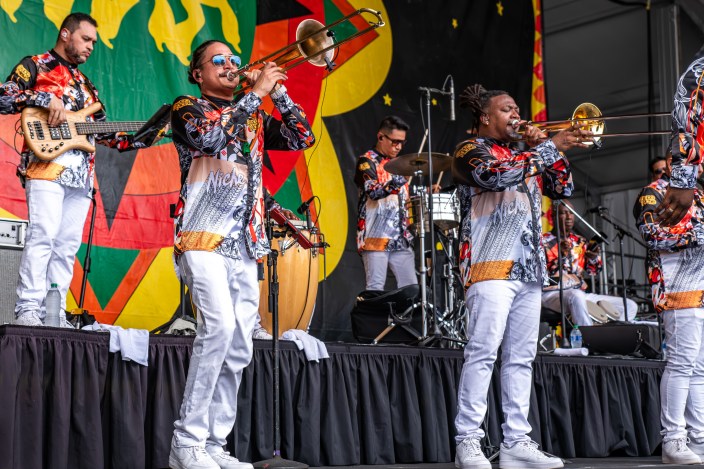
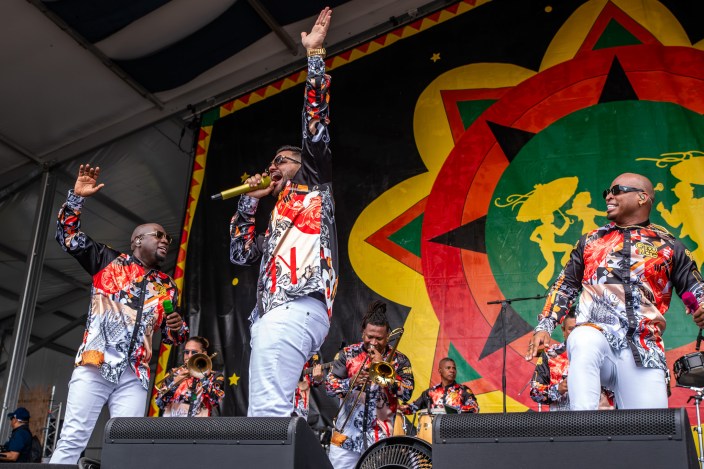
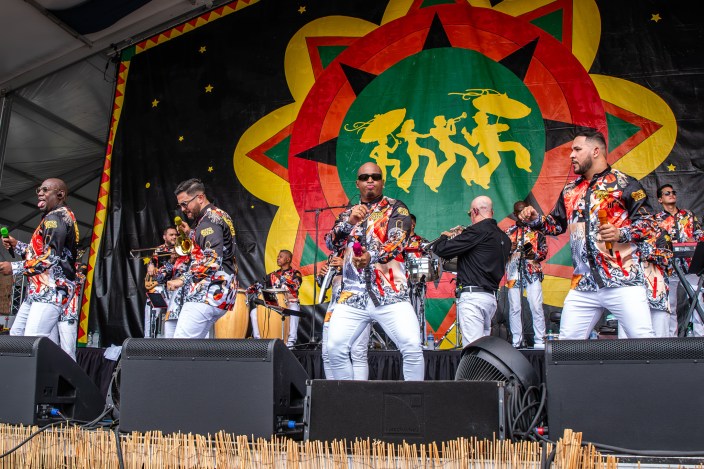
Jimmy Buffet Tribute
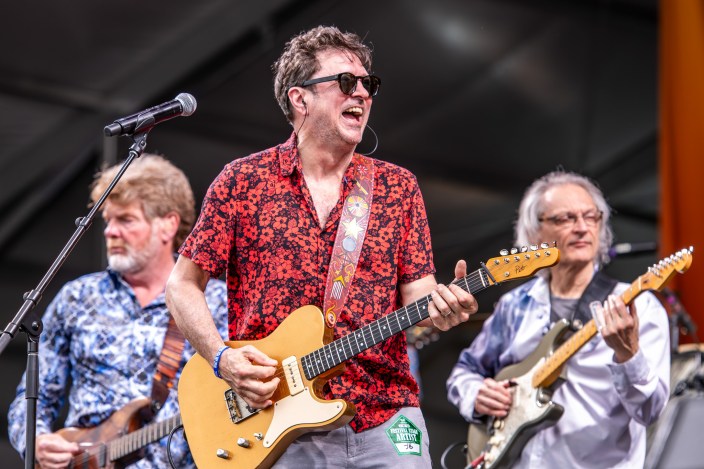
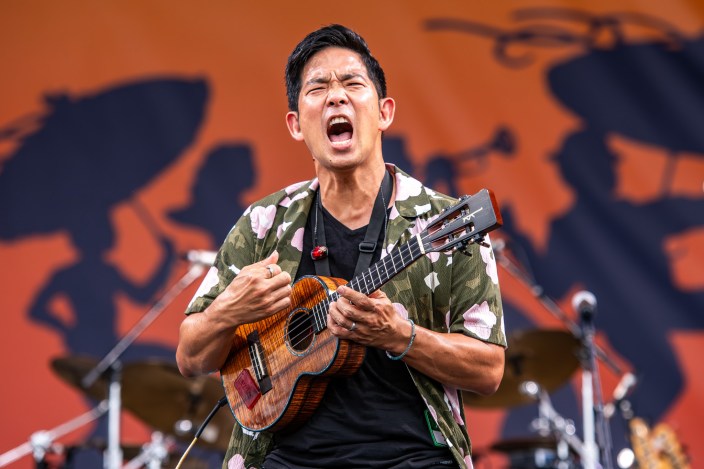
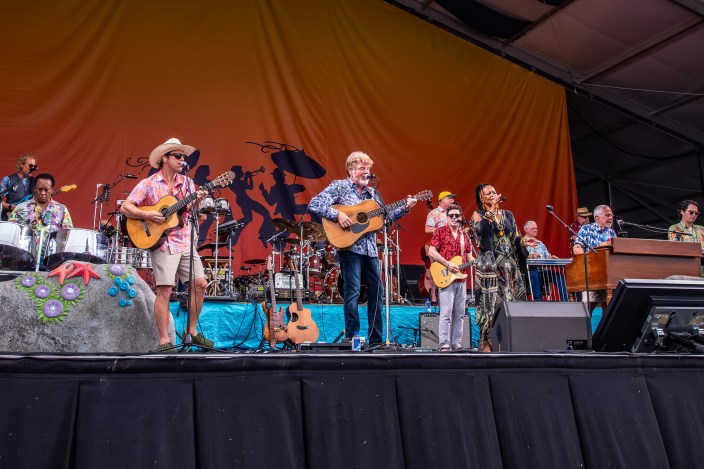
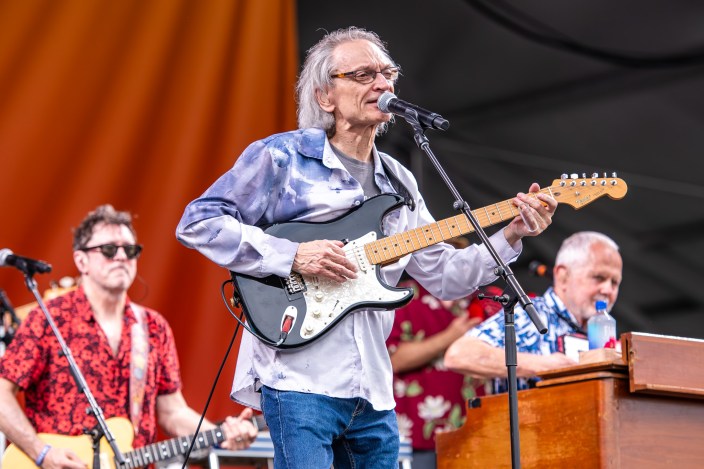
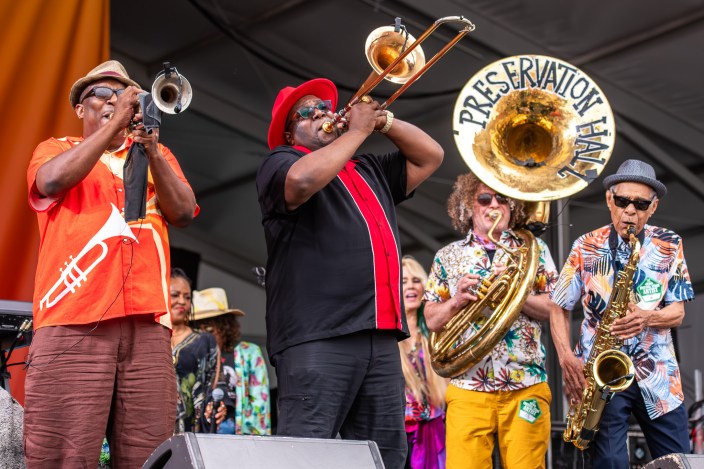
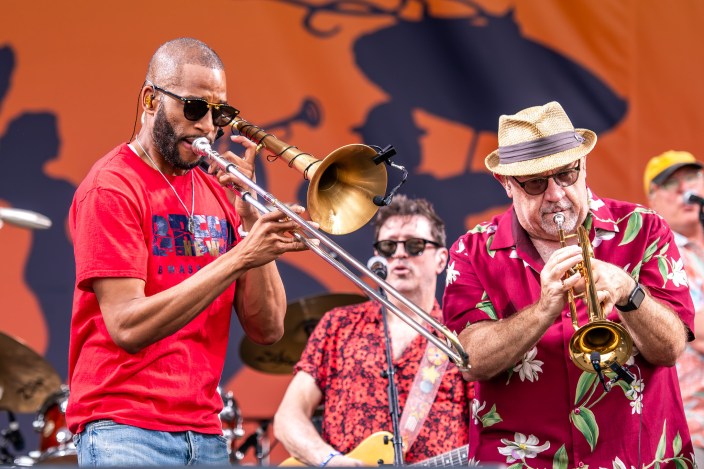
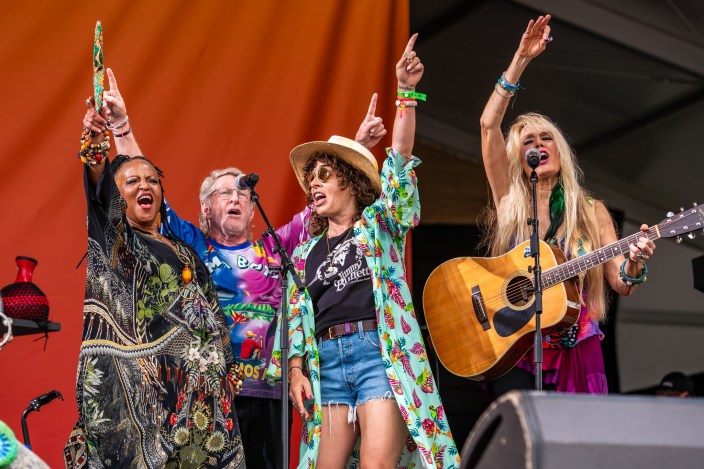
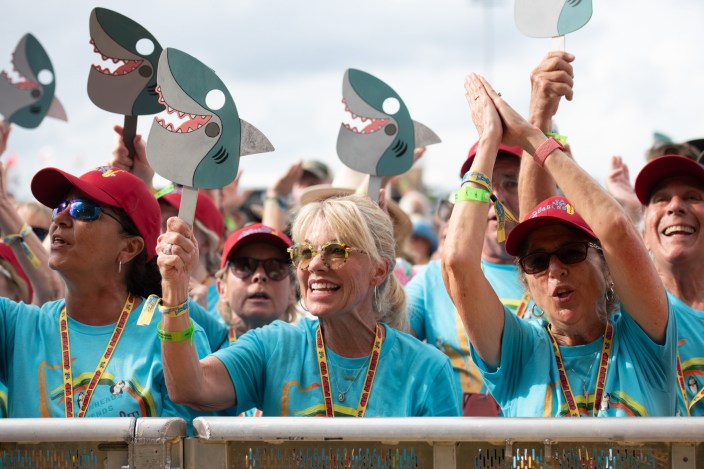
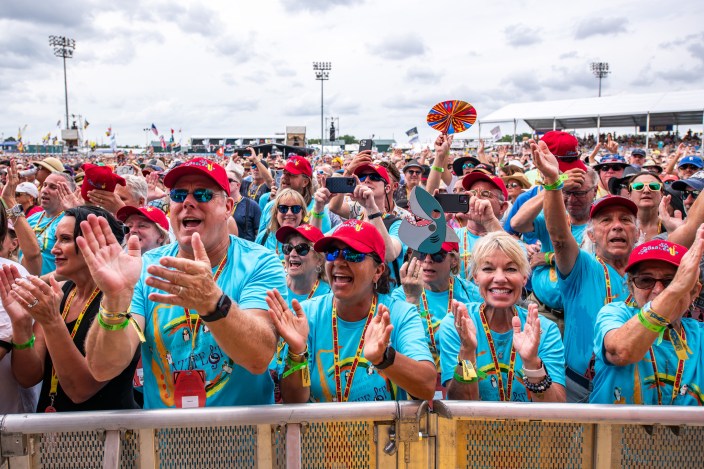
Earth Wind And Fire
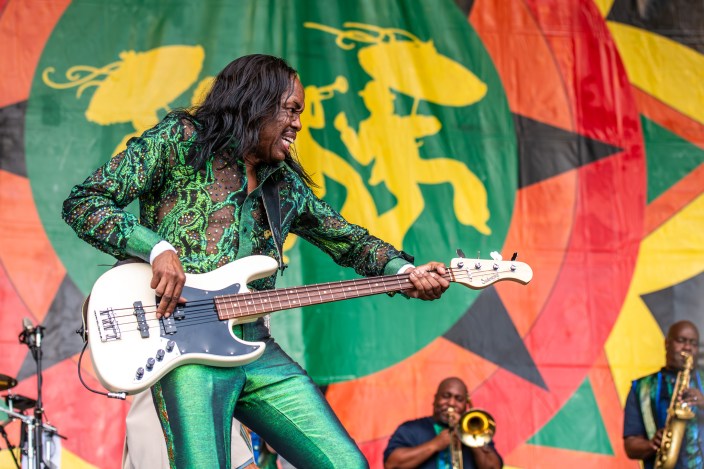
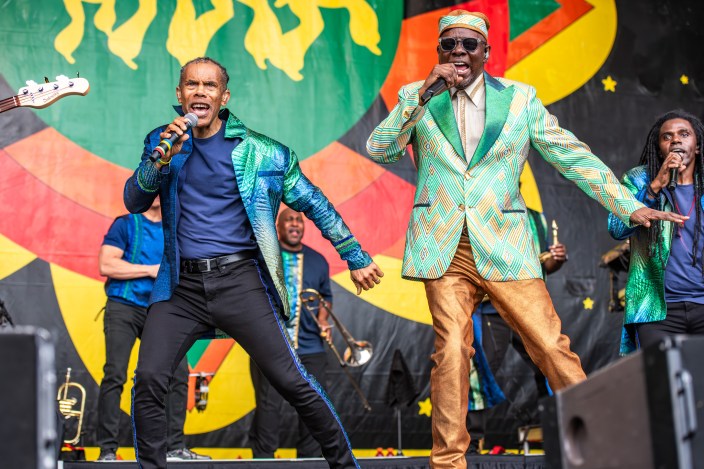
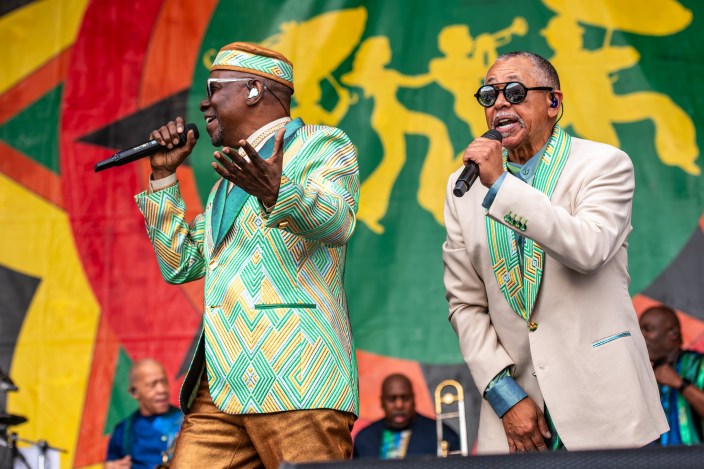
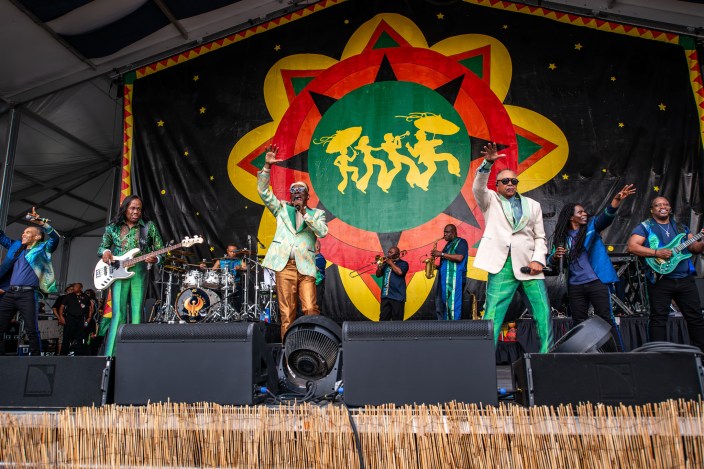
The Wallflowers
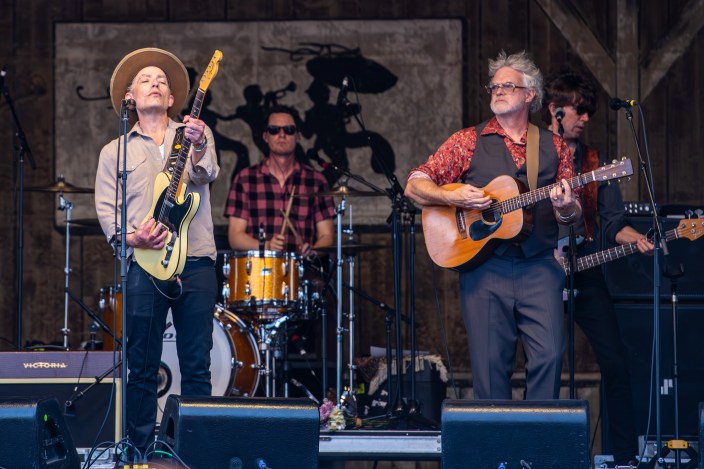
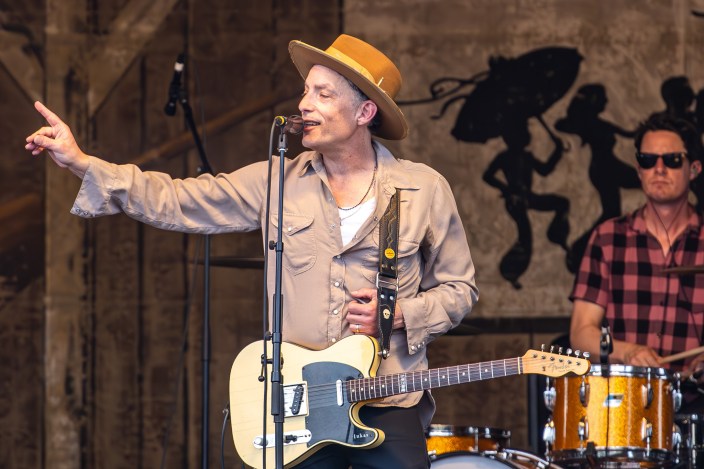
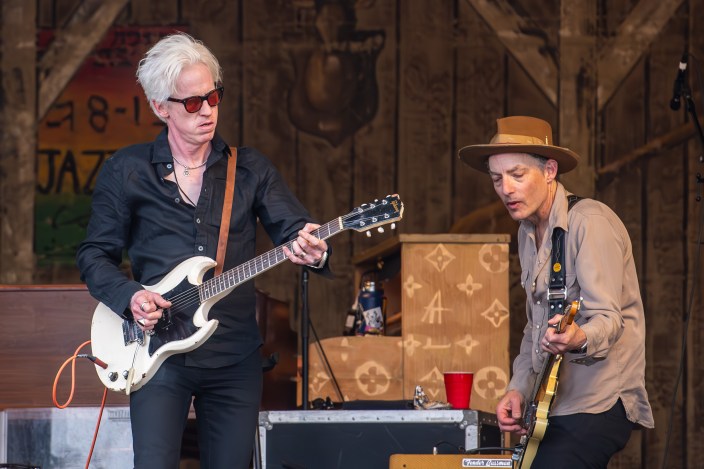
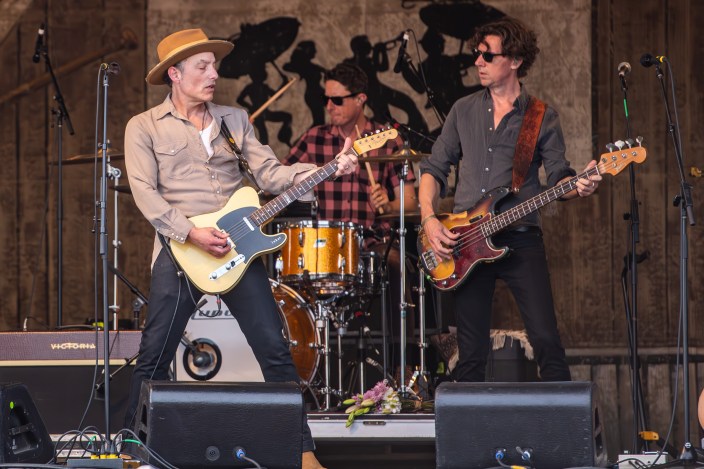

 79
79